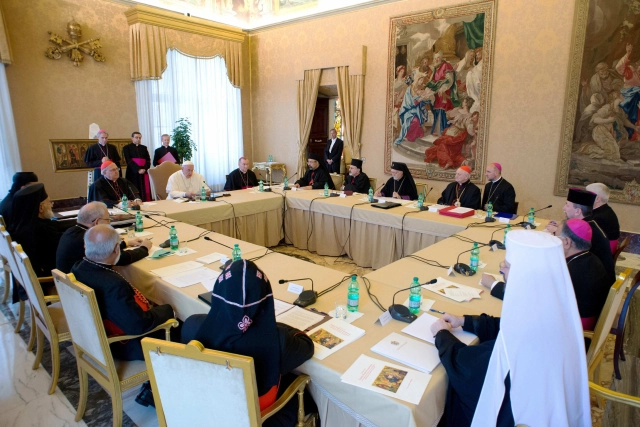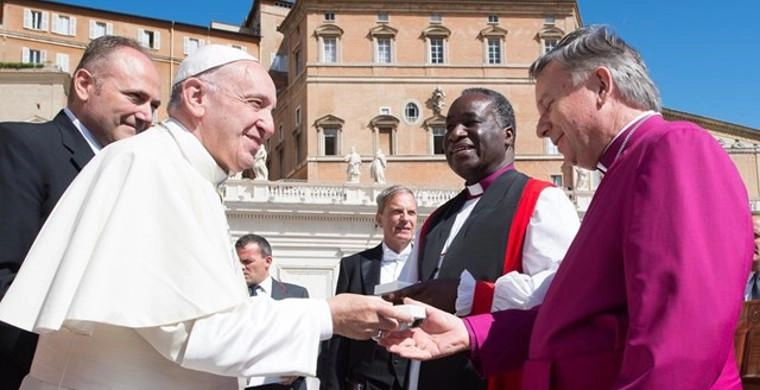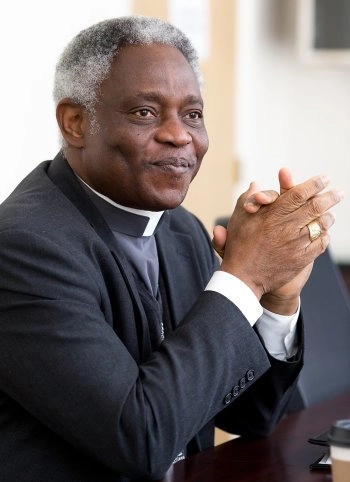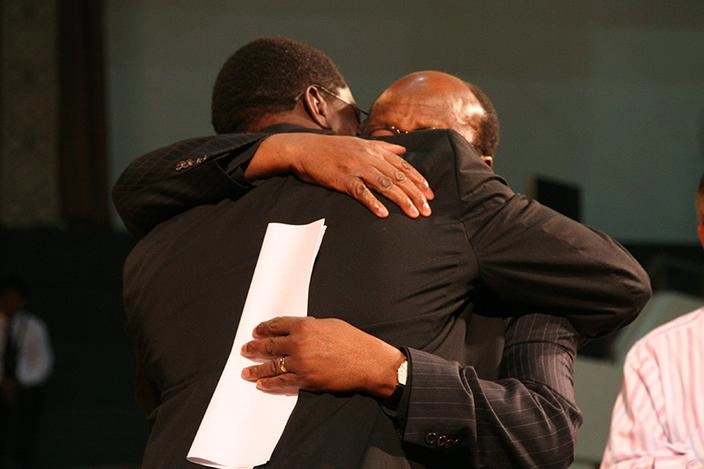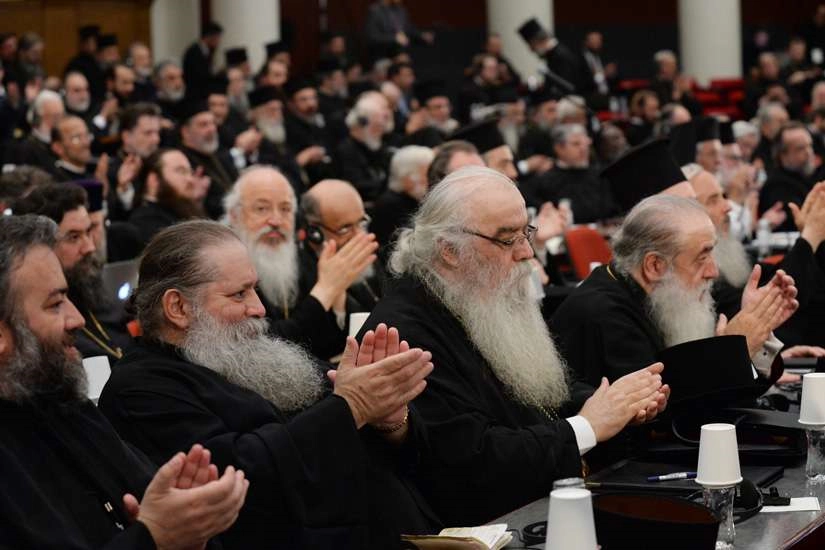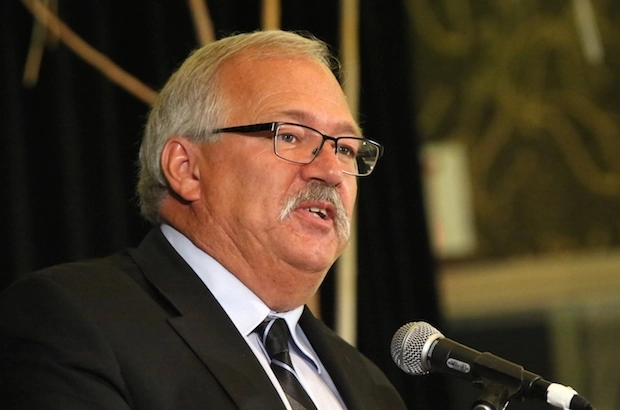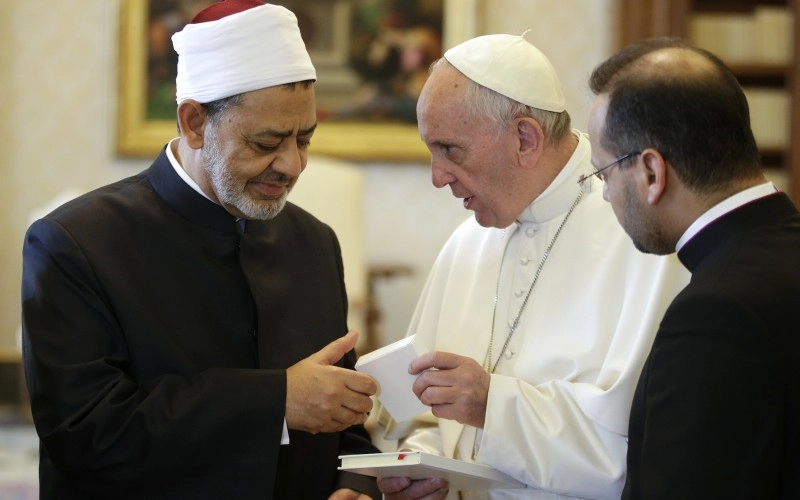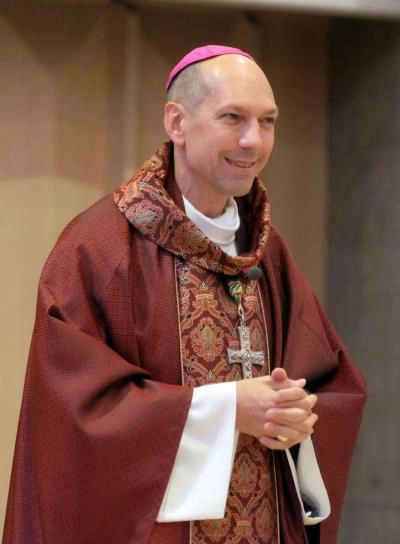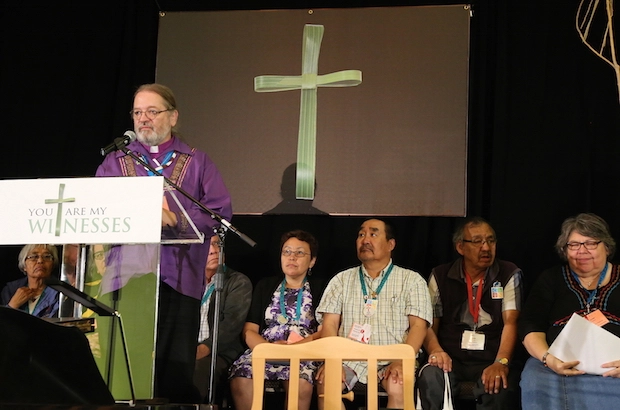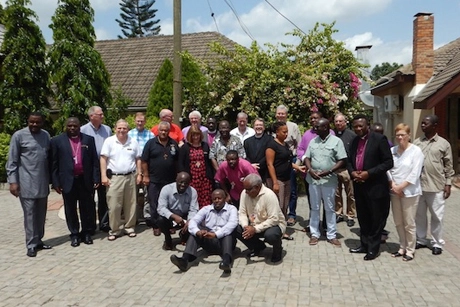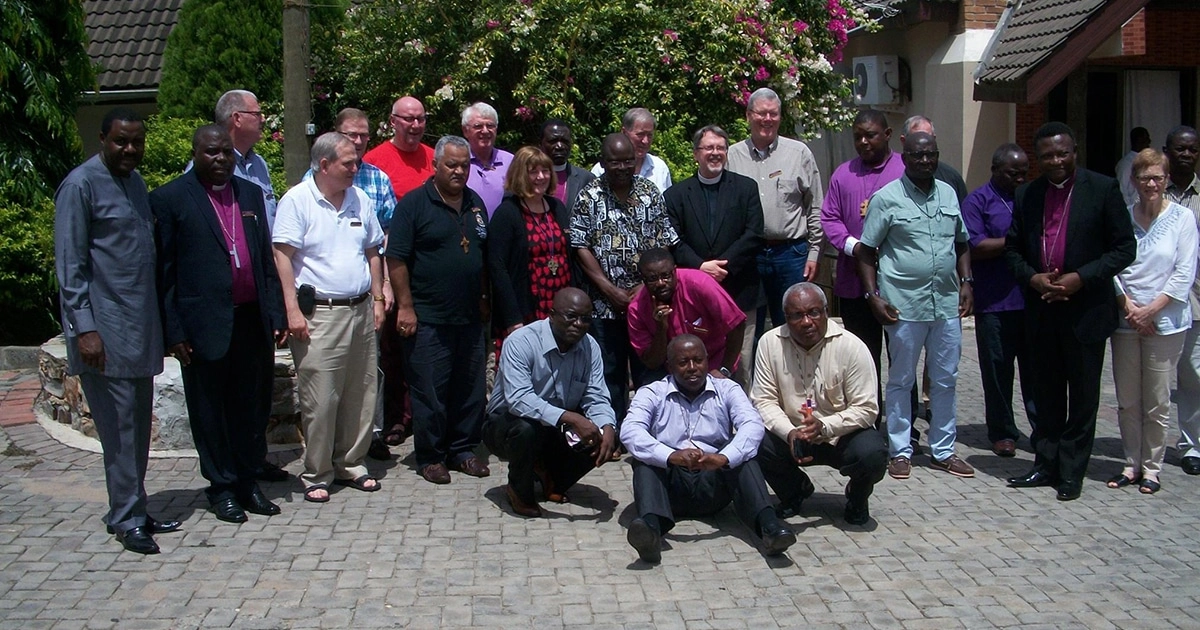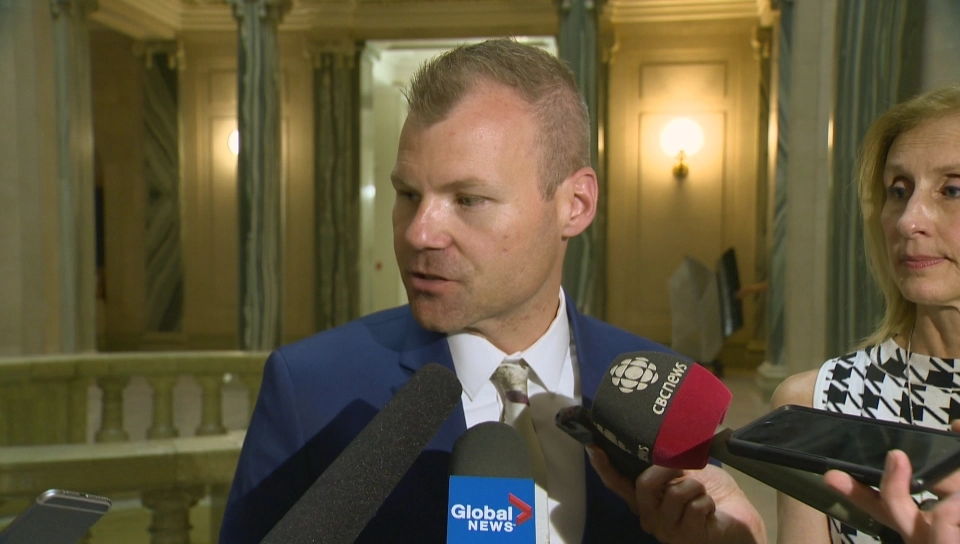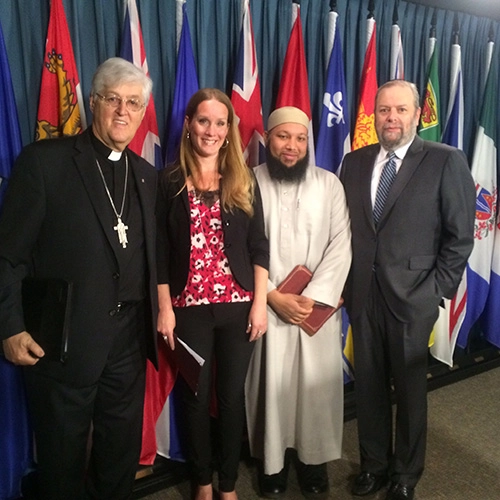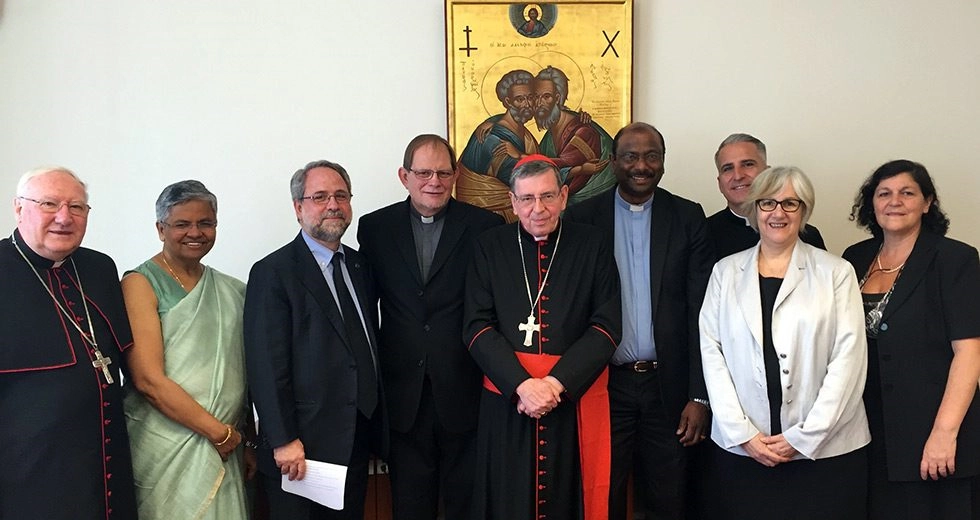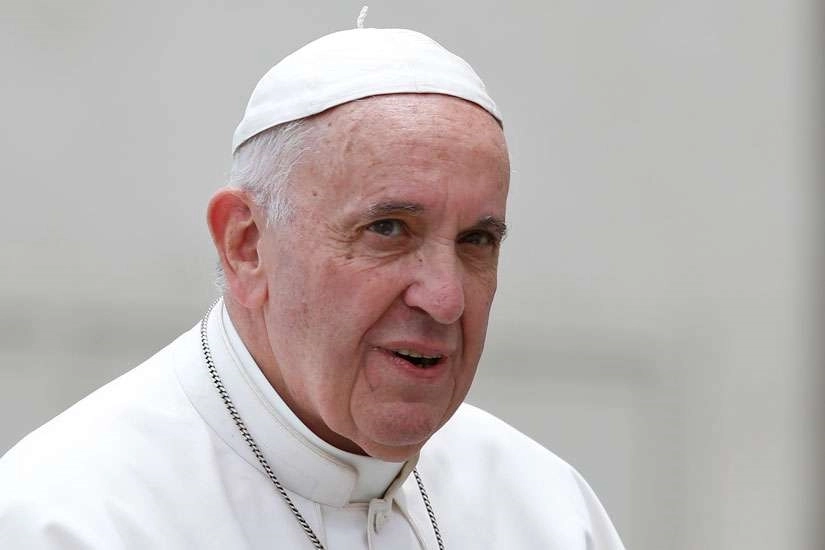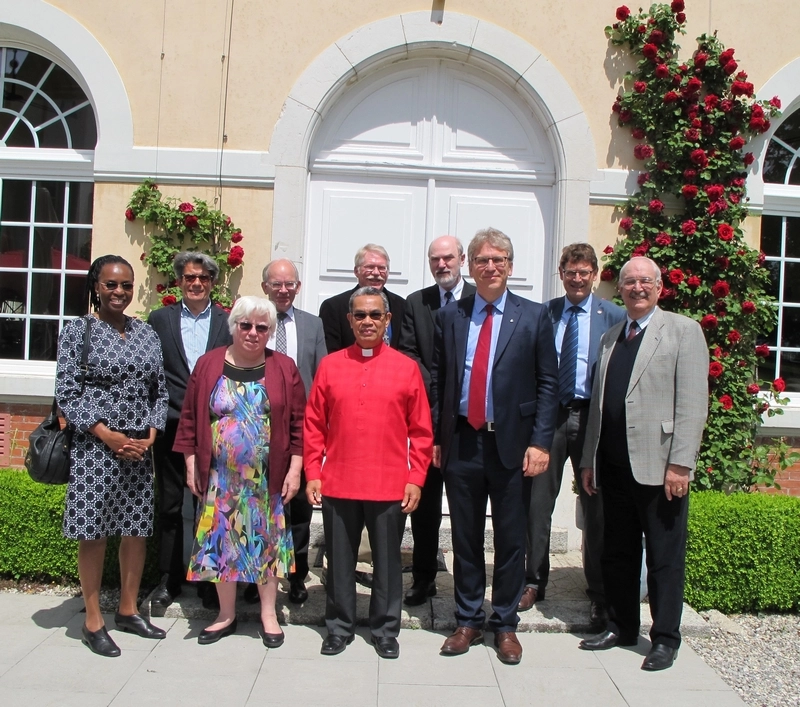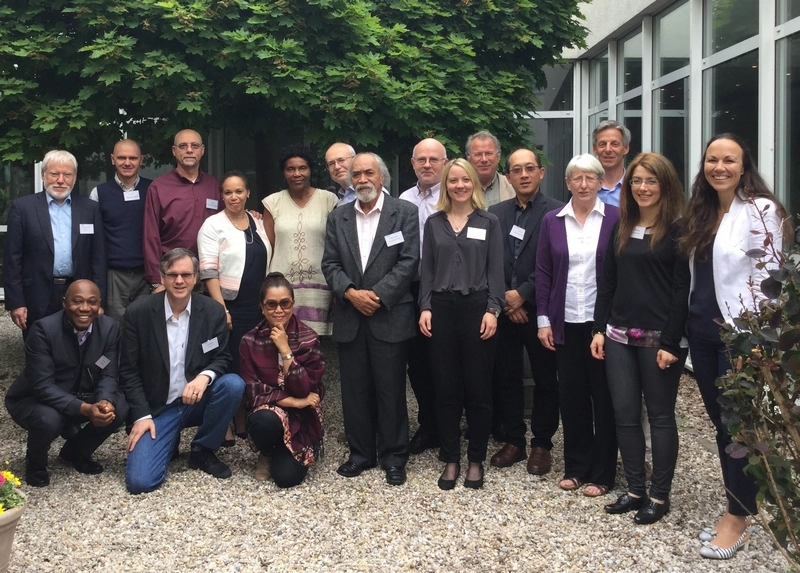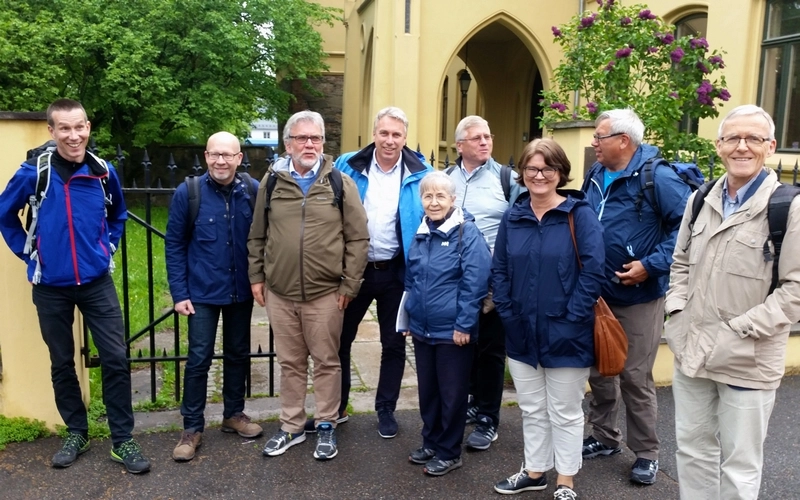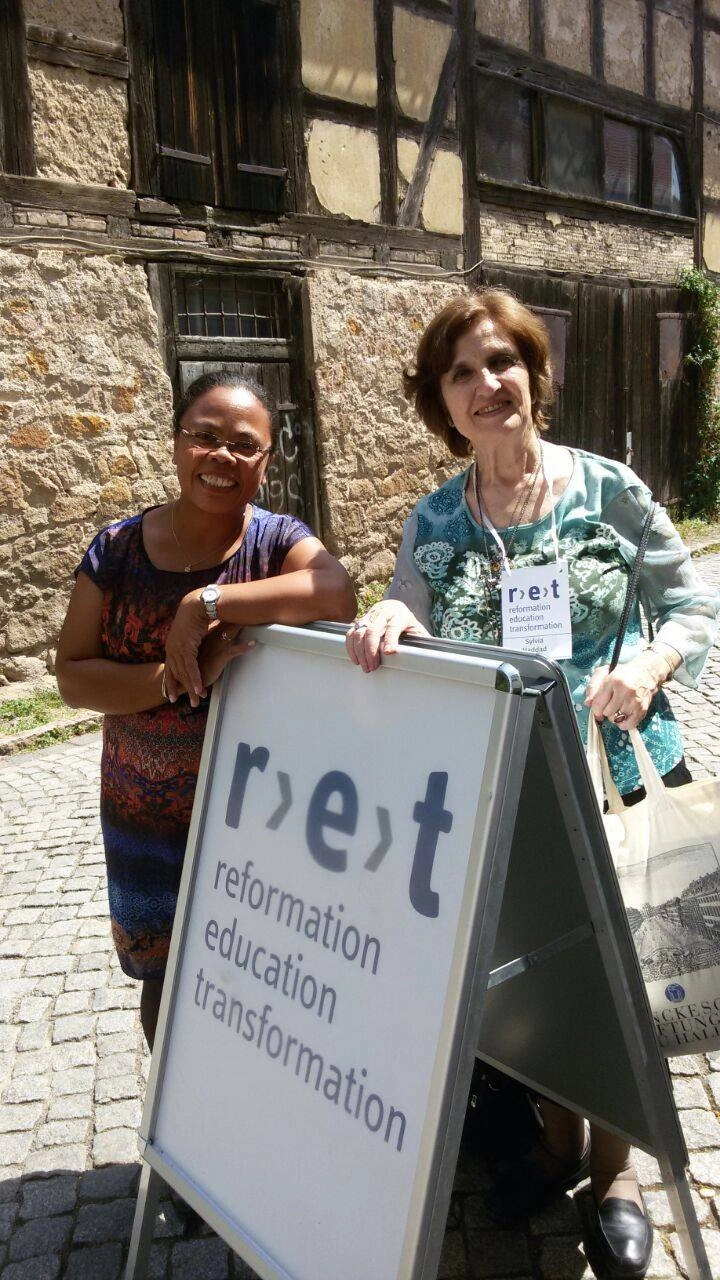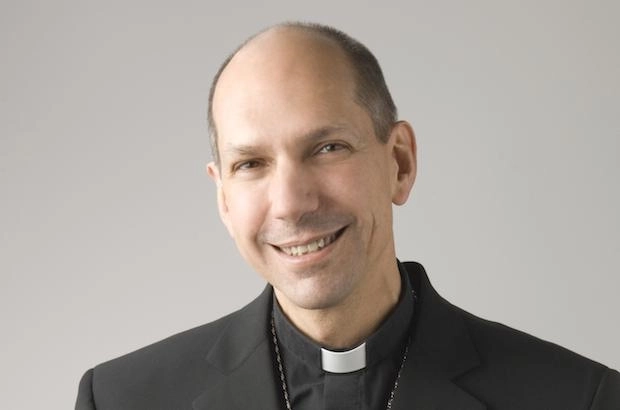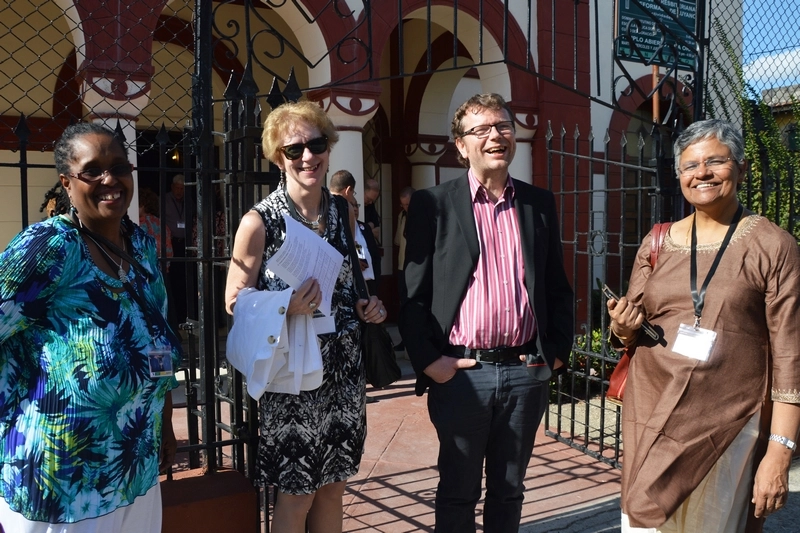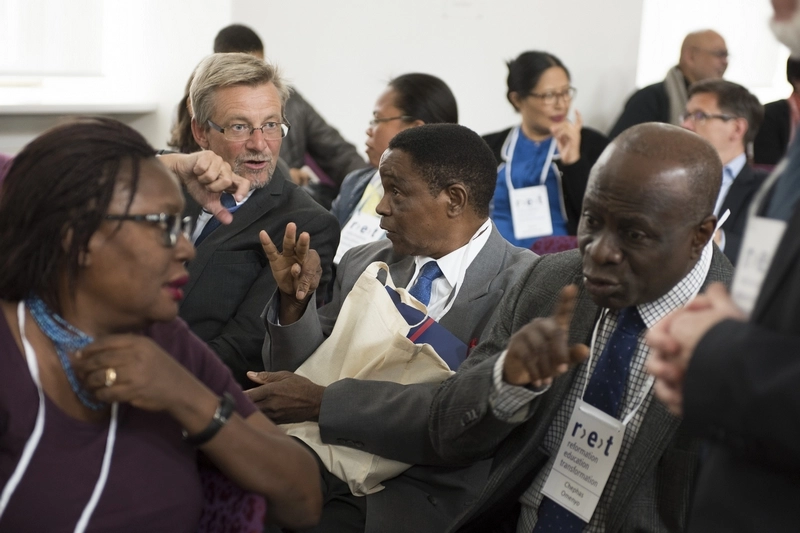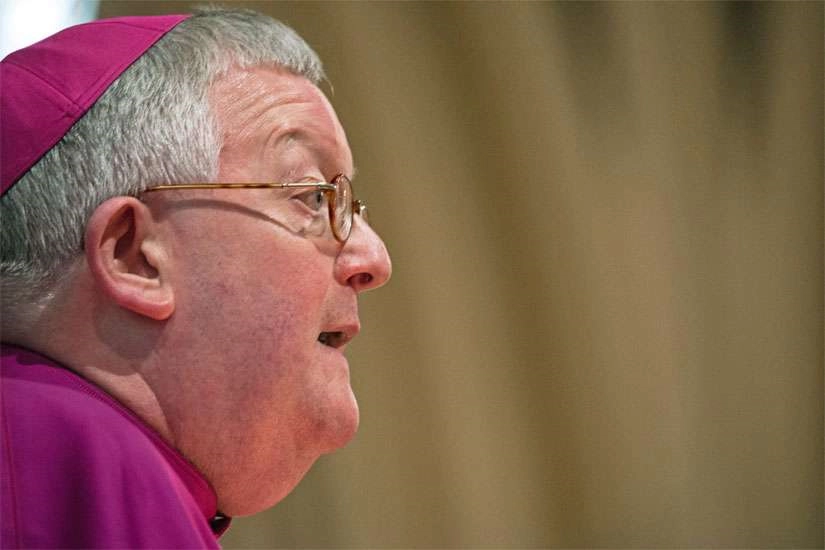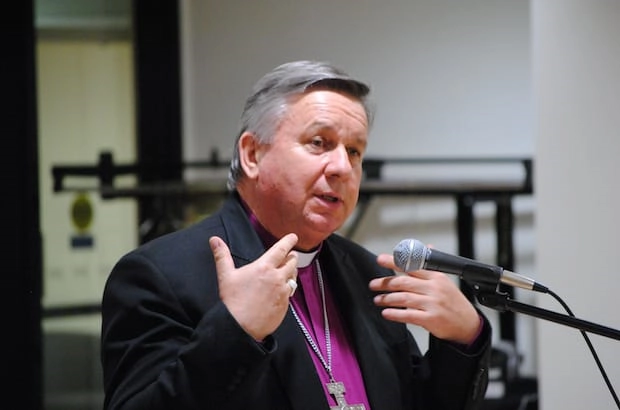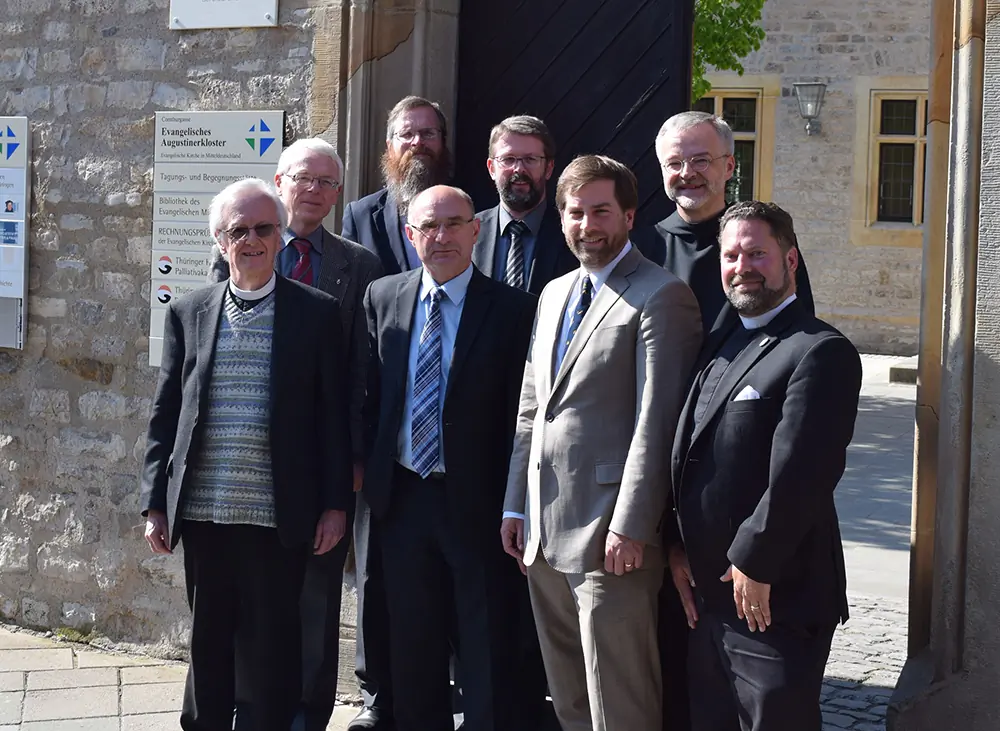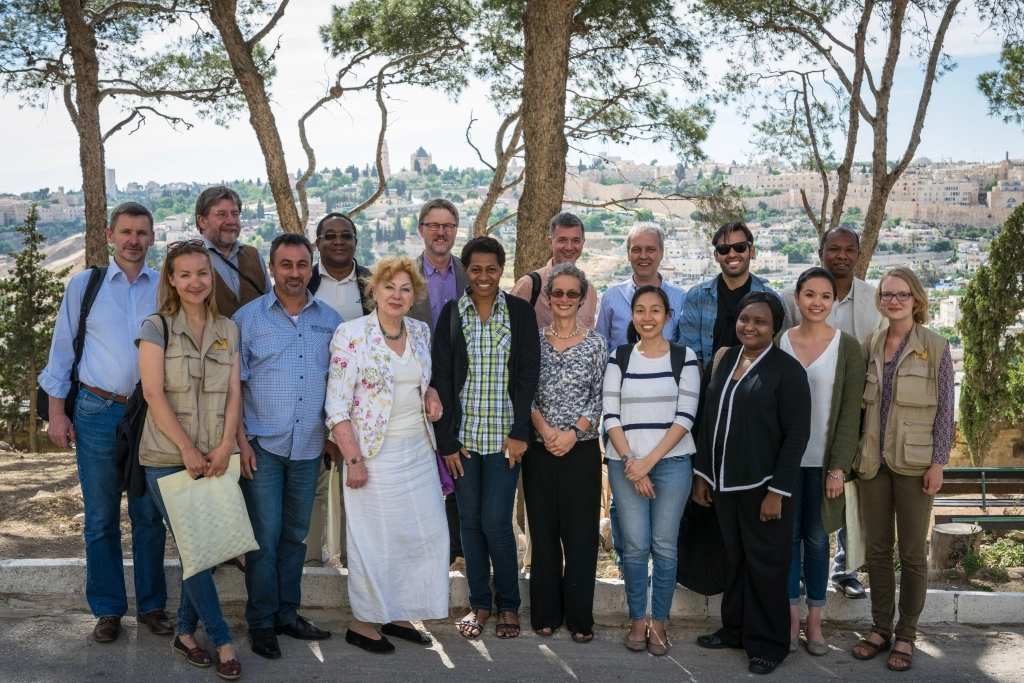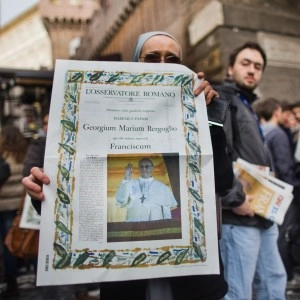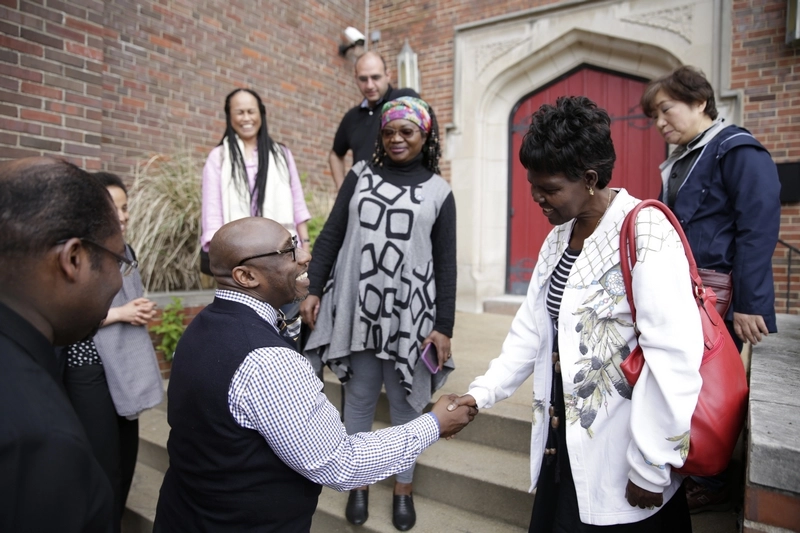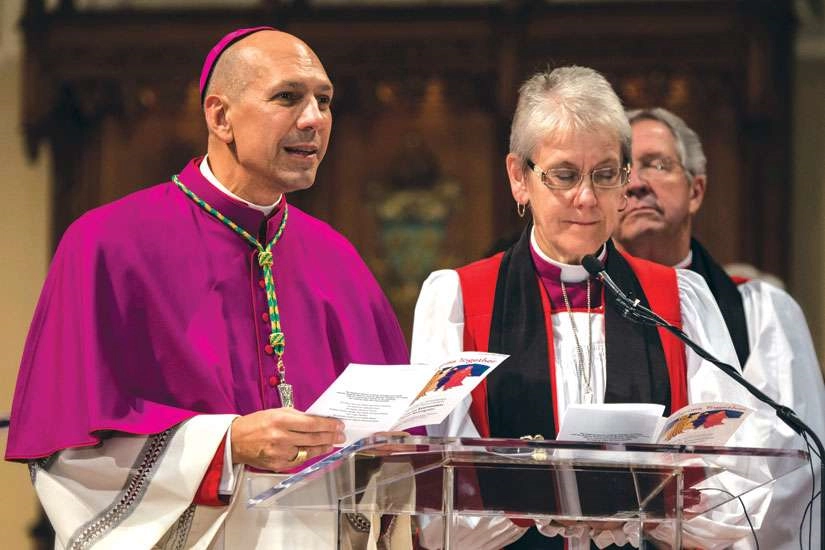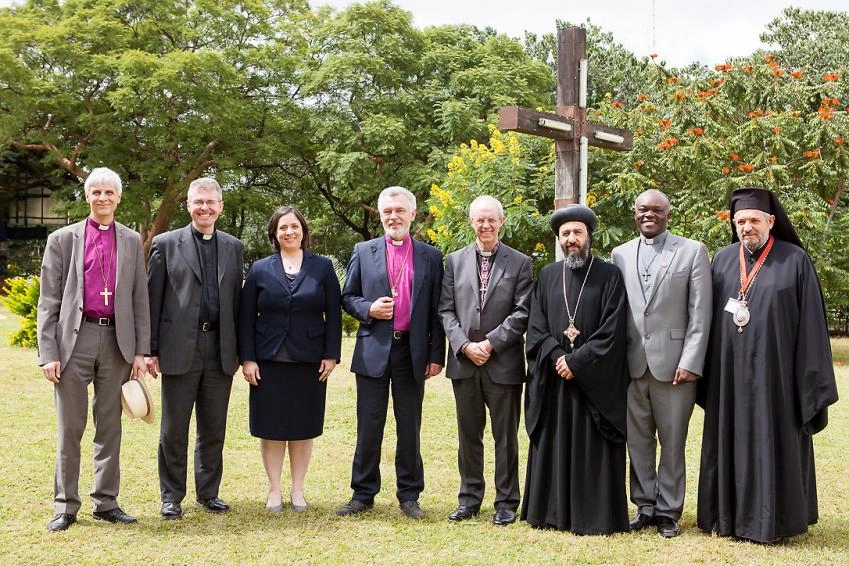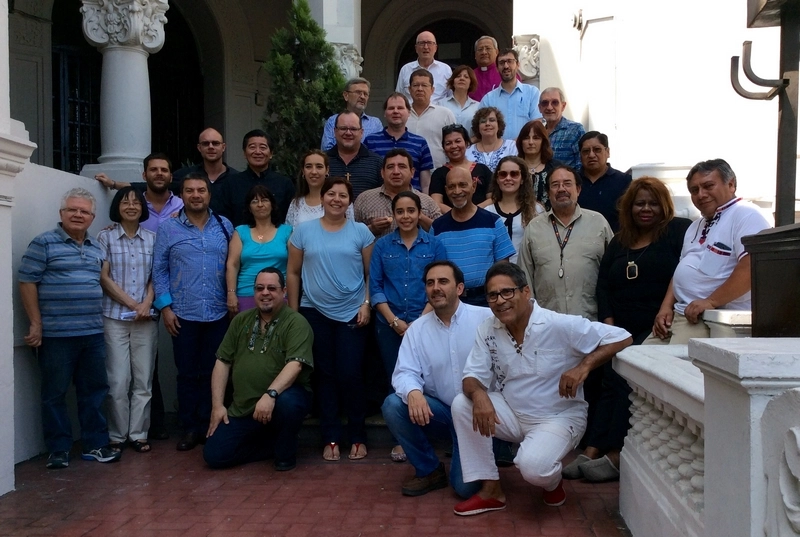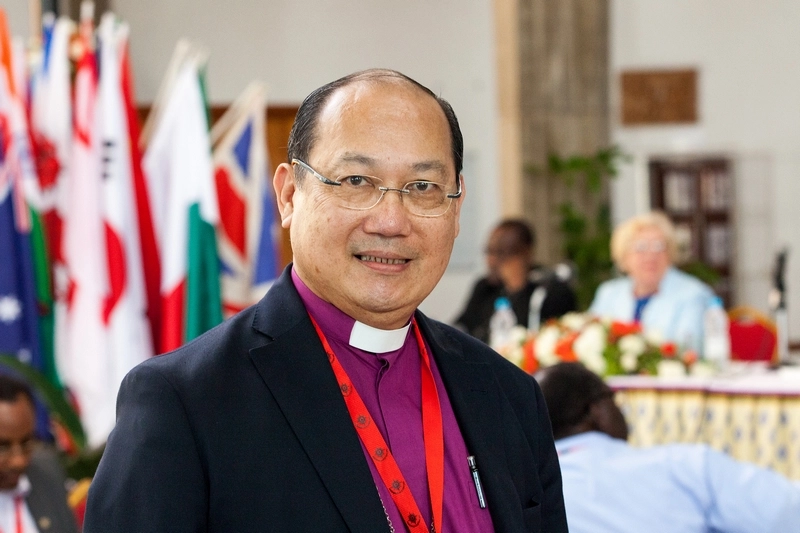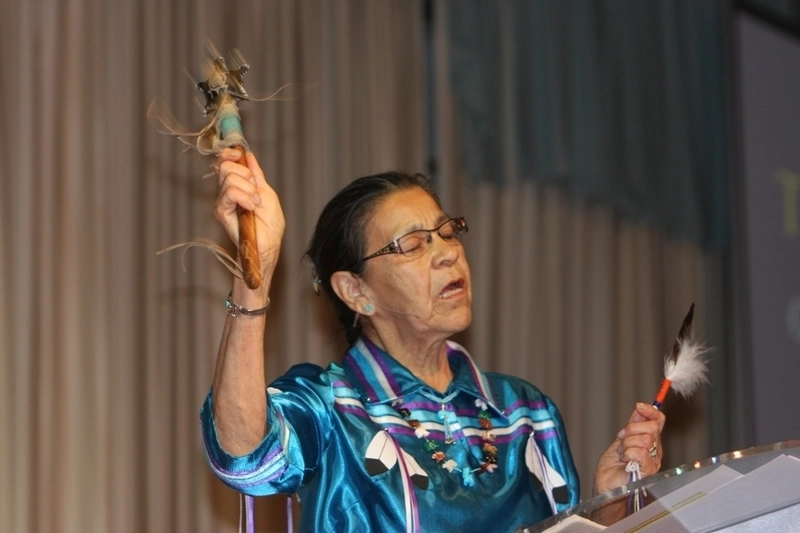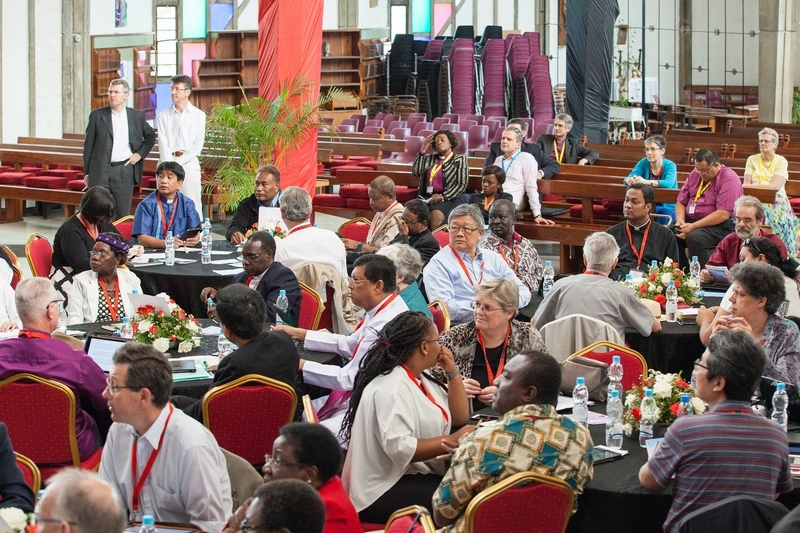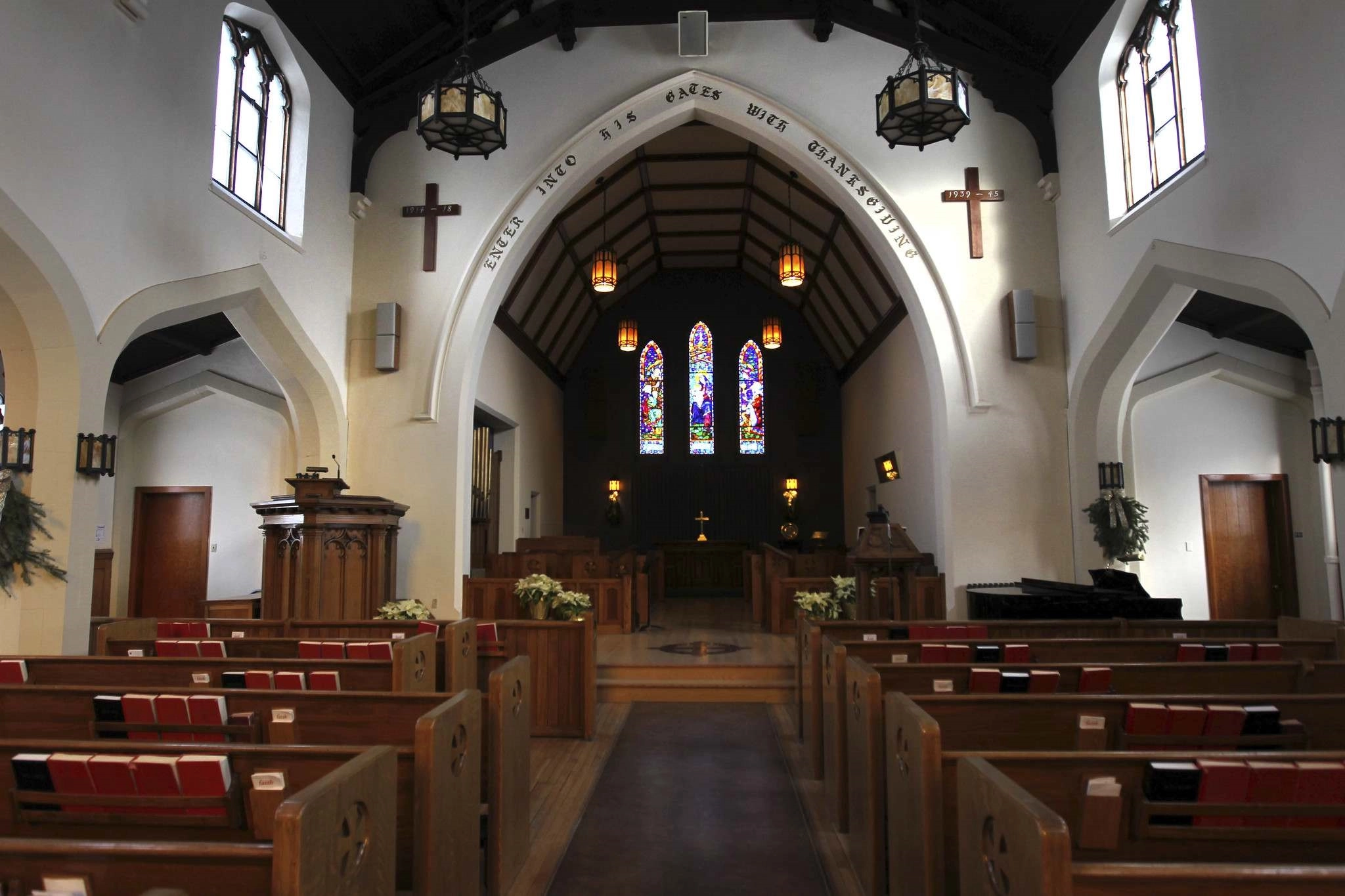- Français
- |
- Booklist
- |
- Week of Prayer
- |
- Links
- Areopagus - a forum for dialogue
- Academic journals
- Acronyms
- Bible tools
- Bibliographies
- Booksellers and publishers
- Churches
- Canadian church headquarters
- Directory of Saskatchewan churches
- Retreat centres
- Saskatchewan church and non-profit agencies
- Ecumenism.net Denominational links
- Anabaptist & Mennonite
- Anglican
- Baptist
- Evangelical
- Independent episcopal
- Lutheran
- Methodist, Wesleyan, and Holiness
- Miscellaneous
- Mormon
- Orthodox (Eastern & Oriental)
- Para-church ministries
- Pentecostal / charismatic
- Presbyterian & Reformed
- Quaker (Society of Friends)
- Roman & Eastern Catholic
- United and uniting
- Documents of Ecumenical Interest
- Ecumenical agencies
- Ecumenical Booklist
- Ecumenical Dialogues
- Glossary
- Human rights
- Inter-religious links
- Justice & peace
- Lectionaries
- Religious news services
- Resource pages
- Search Ecumenism.Net
- |
- Documents
- Ancient & Medieval texts
- Ecumenical Dialogues
- Interreligious
- Anabaptist & Mennonite
- Anglican
- Evangelical
- Lutheran
- Orthodox
- Reformed & Presbyterian
- Roman & Eastern Catholic
- United & Uniting
- Miscellaneous churches
- Canadian Council of Churches (CCC)
- Conference of European Churches (CEC)
- Interchurch Families International Network (IFIN)
- National Council of Churches in Australia (NCCA)
- Lausanne Committee for World Evangelism (LCWE)
- World Council of Churches (WCC)
- Other ecumenical documents
Church traditions
Documents from ecumenical agencies
- |
- Dialogues
- Adventist-Reformed
- African Instituted Churches-Reformed
- Anglican-Lutheran
- Anglican-Orthodox
- Anglican-Reformed
- Anglican-Roman Catholic
- Anglican-United/Uniting
- Baptist-Reformed
- Disciples of Christ-Reformed
- Disciples of Christ-Roman Catholic
- Evangelical-Roman Catholic
- Lutheran-Mennonite
- Lutheran-Mennonite-Roman Catholic
- Lutheran-Reformed
- Lutheran-Roman Catholic
- Mennonite-Reformed
- Mennonite-Roman Catholic
- Methodist-Reformed
- Methodist-Roman Catholic
- Oriental Orthodox-Reformed
- Orthodox-Reformed
- Orthodox-Roman Catholic
- Pentecostal-Reformed
- Prague Consultations
- REC-WARC Consultations
- Roman Catholic-Lutheran-Reformed
- Roman Catholic-Reformed
- Roman Catholic-United Church of Canada
- |
- Quick links
- Canadian Centre for Ecumenism
- Canadian Council of Churches
- Ecumenical Shared Ministries
- Ecumenism in Canada
- Interchurch Families International Network
- International Anglican-Roman Catholic Commission for Unity and Mission
- Kairos: Canadian Ecumenical Justice Initiatives
- North American Academy of Ecumenists
- Prairie Centre for Ecumenism
- Réseau œcuménique justice et paix
- Week of Prayer for Christian Unity
- Women's Interchurch Council of Canada
- World Council of Churches
- |
- Archives
- |
- About us
Archive for category: News
Archive pour catégorie : News
In a change to church law, Latin-rite Catholic deacons may not preside at a wedding when one or both of the new spouses are members of an Eastern Catholic church. The new rule is one of the changes to 11 canons in the Latin-rite Code of Canon law that Pope Francis approved in order to harmonize the laws of the Latin and Eastern Catholic churches on several issues involving the sacraments of baptism and marriage. After more than 15 years of study and worldwide consultation, the conflicting rules were resolved by adopting the Eastern code’s formulations for the Latin church as well, said Bishop Juan Ignacio Arrieta, secretary of the Pontifical Council for Legislative Texts. The bishop spoke to journalists Sept. 15 after the publication of an apostolic letter published “motu proprio” (on his own initiative) in which Pope Francis ordered the changes to the Latin Code of Canon Law, the 1983 text governing the majority of the world’s Catholics. In the Eastern Catholic and Orthodox traditions, the blessing of a priest is necessary for the validity of a marriage. In the Latin-rite church, a deacon can preside over the sacrament. The new law specifies, “Only a priest can validly assist at the matrimony of two Eastern parties or between a Latin and Eastern Catholic or non-Catholic,” meaning a member of an Orthodox Church.
… Read more » … lire la suite »

 Permanent link: ecumenism.net/?p=9520
Permanent link: ecumenism.net/?p=9520
Categories: CNS • In this article: canon law, Eastern churches, marriage, Pope Francis

 Lien permanente : ecumenism.net/?p=9520
Lien permanente : ecumenism.net/?p=9520
Catégorie : CNS • Dans cet article : canon law, Eastern churches, marriage, Pope Francis
The Roman Catholic Bishops of Alberta and the Northwest Territories have issued some new guidance for priests, deacons, and pastoral workers in caring for individuals and families in difficult contemporary situations. One document aims to answer the call of Pope Francis in his Apostolic Exhortation Amoris Laetitia, particularly to assist priests in their duty to accompany those Catholics who are divorced and remarried without having received a decree of nullity. The other follows the legalization in Canada of assisted suicide and euthanasia (“Medical Assistance In Dying”), and focuses on spiritual and sacramental considerations in caring for individuals and families who may be considering death by these means. “The ultimate aim of these guidelines is to help the faithful understand the beautiful teachings of the Church on sacramental marriage, the dignity of the human person, and the inviolable sanctity of human life,” said Archbishop Richard Smith of Edmonton, who serves as president of the Alberta-NWT Bishops. “We know that many Catholics, often due to the messages they receive through the secular culture, have come to some serious misunderstandings around life and family issues,” he said.
… Read more » … lire la suite »

 Permanent link: ecumenism.net/?p=9523
Permanent link: ecumenism.net/?p=9523
Categories: News • In this article: bishops, Catholic, divorce & remarriage, eucharist, euthanasia, pastoral care, physician assisted suicide

 Lien permanente : ecumenism.net/?p=9523
Lien permanente : ecumenism.net/?p=9523
Catégorie : News • Dans cet article : bishops, Catholic, divorce & remarriage, eucharist, euthanasia, pastoral care, physician assisted suicide
Among the thousands of pilgrims and visitors present in St Peter’s Square for the Pope’s general audience on Wednesday was a group of Anglicans from all over the world who are taking part in a week long study course on Christian leadership.
Organised by the Anglican Centre in Rome, the course is based on Biblical scholarship, case studies of exemplary leaders, past and present, and field work in Rome and Assisi.
Participants from the United Kingdom, Australia, New Zealand, the United States, Nigeria and Myanmar were among those attending the audience, while the director of the Anglican Centre, Archbishop David Moxon and Zambian Bishop William Mchombo of the Central African province were also able to exchange a few words with Pope Francis.
… Read more » … lire la suite »

 Permanent link: ecumenism.net/?p=10384
Permanent link: ecumenism.net/?p=10384
Categories: Vatican News • In this article: Anglican Centre in Rome, Pope Francis

 Lien permanente : ecumenism.net/?p=10384
Lien permanente : ecumenism.net/?p=10384
Catégorie : Vatican News • Dans cet article : Anglican Centre in Rome, Pope Francis
To promote Catholic social teaching and ensure appropriate assistance to vulnerable people — especially victims of war, refugees and the sick — Pope Francis has established a new office combining the responsibilities of four pontifical councils.
In an apostolic letter given “motu proprio” (on his own initiative) and published by the Vatican Aug. 31, the pope said the new “Dicastery for Promoting Integral Human Development” will merge the pontifical councils for Justice and Peace, Cor Unum, Migrants and Travellers, and Health Care Ministry.
The pope named Cardinal Peter Turkson, current president of the Pontifical Council for Justice and Peace, to serve as prefect of the new office, which will begin functioning Jan. 1.
In his letter signed Aug. 17, the pope said, “This dicastery will be competent particularly in issues regarding migrants, those in need, the sick, the excluded and marginalized, the imprisoned and the unemployed, as well as victims of armed conflict, natural disasters, and all forms of slavery and torture.”
… Read more » … lire la suite »

 Permanent link: ecumenism.net/?p=9555
Permanent link: ecumenism.net/?p=9555
Categories: CNS • In this article: Dicastery for Justice and Peace, Dicastery for Promoting Integral Human Development, Peter Turkson, Vatican

 Lien permanente : ecumenism.net/?p=9555
Lien permanente : ecumenism.net/?p=9555
Catégorie : CNS • Dans cet article : Dicastery for Justice and Peace, Dicastery for Promoting Integral Human Development, Peter Turkson, Vatican
The reconciliation process between the Lutheran World Federation and Mennonite World Conference has created fertile ground for collaboration. A report summarizing the LWF-MWC action of reconciling with Mennonites over the condemnations in the Augsburg Confession aims to help LWF churches, pastors, seminaries and congregations to “implement the LWF commitment to teach differently about Anabaptists, especially to how they are described in the Augsburg Confession.”
“The seeds of reconciliation sown more than 30 years ago, which flowered at the service of reconciliation in Stuttgart in 2010, are now truly bearing fruit,” says John D. Roth, MWC representative on the LWF Task Force and contributor to the document. “Mennonite and Lutheran pastors and church leaders will find lots of ideas for how they might engage each other at the local level.”
… Read more » … lire la suite »

 Permanent link: ecumenism.net/?p=9514
Permanent link: ecumenism.net/?p=9514
Categories: News • In this article: Christian unity, Lutheran World Federation, Mennonite World Conference, mission, witness

 Lien permanente : ecumenism.net/?p=9514
Lien permanente : ecumenism.net/?p=9514
Catégorie : News • Dans cet article : Christian unity, Lutheran World Federation, Mennonite World Conference, mission, witness
The Russian Orthodox Church, whose boycott of a major summit of Orthodox Christian leaders in Crete last month threatened to slow down efforts to promote greater unity, has declared the meeting “an important event in the history of the conciliar process.”
The church’s synod, in its official reaction to the June 20-26 Holy and Great Council, also said the meeting could not be called “pan-Orthodox” because four of the 14 independent Orthodox member churches did not attend.
The Moscow Patriarchate, which represents between half and two-thirds of the world’s 300 million Orthodox, has been disputing the summit’s pan-Orthodox character since announcing its boycott in early June. Officials at the council said Russia’s Patriarch Kirill could not come to Crete because archconservatives in his ranks opposed it.
But the synod took a more positive approach by calling the session “an important event” and asking its theological commission to study the six documents the council approved and report back on its findings.
… Read more » … lire la suite »

 Permanent link: ecumenism.net/?p=9498
Permanent link: ecumenism.net/?p=9498
Categories: RNS • In this article: Great and Holy Council, Russian Orthodox, synods

 Lien permanente : ecumenism.net/?p=9498
Lien permanente : ecumenism.net/?p=9498
Catégorie : RNS • Dans cet article : Great and Holy Council, Russian Orthodox, synods
For the first time in its history, the Anglican Church of Canada will enter into a bilateral ecumenical dialogue with Mennonite Church Canada (MC-Canada) following a motion passed at General Synod, July 12.
The motion’s mover, Bruce Myers, coadjutor bishop of the diocese of Quebec and former coordinator of ecumenical relations for the national church, explained that as the Anglican church’s relationship to mainstream society changes, it could benefit from talking to a church that has always had a fraught relationship with the mainstream.
“Mennonites have often existed as a church on the margins, both historically and in the contemporary Canadian context,” he noted. “As the Anglican Church of Canada enters a new stage of its life, some of us have been asking if there is something we can learn from our Mennonite sisters and brothers, about living faithfully as disciples of Jesus on the margins of society.”
Myers said the bilateral dialogue would be based on a new approach to ecumenism based not on an attempt to minimize differences, but to receive it as a “gift.”
This “receptive ecumenism” is a way for churches to learn from the differences in each other’s theology and lived experience, without feeling the need to push toward reunion or a full communion relationship.
… Read more » … lire la suite »

 Permanent link: ecumenism.net/?p=9488
Permanent link: ecumenism.net/?p=9488
Categories: Anglican Journal, Dialogue • In this article: Anglican Church of Canada, dialogue, Mennonite Church Canada

 Lien permanente : ecumenism.net/?p=9488
Lien permanente : ecumenism.net/?p=9488
Catégorie : Anglican Journal, Dialogue • Dans cet article : Anglican Church of Canada, dialogue, Mennonite Church Canada
Assembly 2016 held in Saskatoon from July 6-10 may become known as a watershed year by delegates in attendance.
By turns intense and emotional, joyful and worshipful, the gathered made significant decisions that will impact the Mennonite Church Canada body of Christ for years to come.
On Thursday evening, delegates voted in favour of repudiating the Doctrine of Discovery – a settler teaching that has marginalized and taken rights away from indigenous people for centuries. While much education on the Doctrine of Discovery has already begun among congregations, much more is required.
On Saturday morning, 85% of delegates voted in favour of the Being a Faithful Church (BFC) recommendation to create space and test alternative understandings to traditional beliefs on committed same-sex relationships. Congregations who are asked to bless same sex marriages will now be given space to do so, even as the national family of faith continues testing to see if such discernment is a nudging of the Spirit of God.
… Read more » … lire la suite »

 Permanent link: ecumenism.net/?p=9364
Permanent link: ecumenism.net/?p=9364
Categories: News • In this article: human sexuality, Indigenous peoples, Mennonite Church Canada, synods

 Lien permanente : ecumenism.net/?p=9364
Lien permanente : ecumenism.net/?p=9364
Catégorie : News • Dans cet article : human sexuality, Indigenous peoples, Mennonite Church Canada, synods
Several American-based religious denominations remain defiant in the face of new laws that would ban them from proselytizing in Russia.
The so-called “Yarovaya laws” make it illegal to preach, proselytize or hand out religious materials outside of specially designated places. The laws also give the Russian government wide scope to monitor and record electronic messages and phone calls.
The package of laws, billed as anti-terrorism measures, were passed by the Russian Duma, or parliament, on June 24, and signed by Russian president Vladimir Putin on July 7.
The United States Commission on International Religious Freedom, a bipartisan government panel which makes policy recommendations, condemned the new laws.
“These deeply flawed anti-terrorism measures will buttress the Russian government’s war against human rights and religious freedom,” Thomas J. Reese, a Jesuit priest and chair of the commission said after the measures were passed. “They will make it easier for Russian authorities to repress religious communities, stifle peaceful dissent, and detain and imprison people.”
… Read more » … lire la suite »

 Permanent link: ecumenism.net/?p=9361
Permanent link: ecumenism.net/?p=9361
Categories: RNS • In this article: human rights, religious freedom, Russia

 Lien permanente : ecumenism.net/?p=9361
Lien permanente : ecumenism.net/?p=9361
Catégorie : RNS • Dans cet article : human rights, religious freedom, Russia
The Vatican and Sunni Islam’s leading institution of higher learning have begun looking for ways to restart formal dialogue.
Acting on Pope Francis’ expressed desire, the Pontifical Council for Interreligious Dialogue was sending a top-level official to Cairo to visit al-Azhar University, the council said in a written press release July 12.
Spanish Bishop Miguel Ayuso Guixot, secretary of the pontifical council, will attend a “preliminary meeting” July 13 with Mahmoud Hamdi Zakzouk, a member of the university’s Council of Senior Scholars and director of the al-Azhar Center for Dialogue. Archbishop Bruno Musaro, the apostolic nuncio to Egypt, was to also attend the meeting.
The meeting, which was requested by the pontifical council following the pope’s “expressed desire, will evaluate how to begin the resumption of dialogue between the Pontifical Council for Interreligious Dialogue and al-Azhar University,” the press release said.
The encounter follows the landmark meeting at the Vatican May 23 between Pope Francis and the university’s grand imam, Ahmad el-Tayeb.
… Read more » … lire la suite »

 Permanent link: ecumenism.net/?p=9359
Permanent link: ecumenism.net/?p=9359
Categories: CNS • In this article: Al-Azhar, dialogue, Dicastery for Interreligious Dialogue, interfaith, Vatican

 Lien permanente : ecumenism.net/?p=9359
Lien permanente : ecumenism.net/?p=9359
Catégorie : CNS • Dans cet article : Al-Azhar, dialogue, Dicastery for Interreligious Dialogue, interfaith, Vatican
Pope Francis has named Bishop Donald Bolen of Saskatoon, Sask., as the new archbishop of Regina.
Archbishop Bolen’s appointment was announced July 11 at the Vatican. He succeeds Archbishop Daniel Bohan, who died in January.
Archbishop Bolen is known nationally and internationally for his work promoting Christian unity. From 2001 to 2008 he worked at the Pontifical Council for Promoting Christian Unity at the Vatican, before returning to Regina in 2009. Since his return, he has served as a bishop member of the Christian unity council and as co-chair of the International Anglican-Roman Catholic Commission for Unity and Mission. Since 2013 he has served as co-chair of the Joint International Commission for Dialogue between the World Methodist Council and the Roman Catholic Church.
Speaking of his new appointment, Archbishop Bolen, who was ordained a priest in Regina and served as archdiocesan vicar general and chair of the archdiocesan ecumenical commission, said: “To be moved from the Diocese of Saskatoon is painful, because it has been such a grace-filled experience to live and to serve here as bishop, but, at the same time, to move to the Archdiocese of Regina is to go home. I am profoundly grateful to remain in my home province.”
… Read more » … lire la suite »

 Permanent link: ecumenism.net/?p=9355
Permanent link: ecumenism.net/?p=9355
Categories: CNS • In this article: Donald Bolen, Regina, Saskatchewan, Saskatoon

 Lien permanente : ecumenism.net/?p=9355
Lien permanente : ecumenism.net/?p=9355
Catégorie : CNS • Dans cet article : Donald Bolen, Regina, Saskatchewan, Saskatoon
Indigenous Anglicans took another step on the road toward self-determination July 10 when General Synod received two documents presenting the goals, objectives and features of a fully Indigenous province within the Anglican Church of Canada.
In a PowerPoint presentation titled Unique Features of an Indigenous Province: The Confederacy of the Indigenous Spiritual Ministry, Indigenous ministries co-ordinator Canon Virginia “Ginny” Doctor outlined 13 qualities a self-determining Indigenous Spiritual Ministry should have.
While some of the features were fairly aspirational long-term goals, such as “better relationships between Indigenous communities and with settler communities,” and “high value on elders and youth,” others were more immediate.
… Read more » … lire la suite »

 Permanent link: ecumenism.net/?p=9399
Permanent link: ecumenism.net/?p=9399
Categories: Anglican Journal • In this article: Anglican Church of Canada, Indigenous peoples, synods

 Lien permanente : ecumenism.net/?p=9399
Lien permanente : ecumenism.net/?p=9399
Catégorie : Anglican Journal • Dans cet article : Anglican Church of Canada, Indigenous peoples, synods
Seven years after the first Consultation of Anglican Bishops in Dialogue was held at the Anglican Communion offices in London, England, in 2010, a record 24 bishops – including four primates – came together in Accra, Ghana, from 25 – 29 May to learn about the unique contexts and challenges different parts of the African, North American and English churches are facing. In a testimony released following the consultation, titled “Unity in Diversity,” the bishops looked back on what has been accomplished since 2010, and said that in order to build a stronger sense of unity, the Communion needs to turn to the past.
… Read more » … lire la suite »

 Permanent link: ecumenism.net/?p=9311
Permanent link: ecumenism.net/?p=9311
Categories: ACNS • In this article: Anglican Communion, Consultation of Anglican Bishops in Dialogue

 Lien permanente : ecumenism.net/?p=9311
Lien permanente : ecumenism.net/?p=9311
Catégorie : ACNS • Dans cet article : Anglican Communion, Consultation of Anglican Bishops in Dialogue
The next World Mission Conference is to be held in Arusha, Tanzania, 8-13 March 2018. The proposal to hold the conference was approved today by the World Council of Churches (WCC) Central Committee at its meeting in Trondheim, Norway. Bishop Geevarghese Mor Coorilos, Moderator of the WCC’s Commission on World Mission and Evangelism (CWME), presented the proposal. The conference theme is “Moving in the Spirit: Called to Transforming Discipleship.” More than 700 delegates from churches worldwide are expected to gather for the event hosted by the Evangelical Lutheran Church in Tanzania. The conference is the first to be held in Africa since 1958, when it was hosted in Ghana. “CWME recognizes that the African continent is one of the most vibrant regions of world Christianity,” CWME Director, Dr Jooseop Keum explains. “It is important that the spirit of Africa pervade the conference from planning through to delivery. A significant numbers of speakers and participants will be from the region.” The mission executive adds that holding the conference in Africa will allow participants to learn about African ecumenical mission initiatives.
… Read more » … lire la suite »

 Permanent link: ecumenism.net/?p=9490
Permanent link: ecumenism.net/?p=9490
Categories: WCC News • In this article: evangelism/evangelization, mission, WCC Commission on World Mission and Evangelism

 Lien permanente : ecumenism.net/?p=9490
Lien permanente : ecumenism.net/?p=9490
Catégorie : WCC News • Dans cet article : evangelism/evangelization, mission, WCC Commission on World Mission and Evangelism
Introduced by the Most Rev. Prof. Emmanuel Asante as an ecumenical contribution from the Methodist Church of Ghana, the Akan concept of sankofa served as a guiding framework for the Seventh Consultation of Anglican Bishops in Dialogue, which took place from May 25-29 in Accra, Ghana. The gathering brought together bishops from Canada, Ghana, Swaziland, Tanzania, Kenya, South Africa, Burundi, Zambia, England, and the United States. Sankofa—literally, ‘It is not a taboo to fetch what is at risk of being left behind’—refers broadly to the unity of past and present, where the narrative of the past is a dynamic reality that cannot be separated from consideration of the present and future. The Consultation of Anglican Bishops in Dialogue emerged after the 2008 Lambeth Conference as a way for bishops from different backgrounds to continue an ongoing, respectful dialogue in the midst of significant disagreements, primarily over the issues of human sexuality and same-sex marriage.
… Read more » … lire la suite »

 Permanent link: ecumenism.net/?p=9313
Permanent link: ecumenism.net/?p=9313
Categories: Communiqué, News • In this article: Anglican Communion, Consultation of Anglican Bishops in Dialogue, Fred Hiltz, human sexuality, Michael Curry

 Lien permanente : ecumenism.net/?p=9313
Lien permanente : ecumenism.net/?p=9313
Catégorie : Communiqué, News • Dans cet article : Anglican Communion, Consultation of Anglican Bishops in Dialogue, Fred Hiltz, human sexuality, Michael Curry
Religious leaders across Saskatchewan say doctors who don’t want to help patients die shouldn’t be forced to refer them to another physician who will.
Christian, Muslim and Jewish leaders met with Health Minister Dustin Duncan at the Saskatchewan legislature Tuesday and said facilities should not be forced to help people end their lives either. Duncan said the province is looking at ways to accommodate those concerns about the new federal law that allows medical assisted dying.
The law says doctors can’t be forced to provide the service. But the College of Physicians and Surgeons of Saskatchewan policy also says they “must not abandon a patient who makes this request” and they need to arrange “timely access” to another physician or resources.
“We also feel that people do have a right to information,” said Mary Deutscher, with the justice and peace commission of the Roman Catholic Diocese of Saskatoon. “We have no problem with providing that information, but there’s something different about a direct referral, that actually says that you need to find someone who will carry through on what we see as a very harmful action. Do you want to force doctors to have to harm people that they care for? And many of these doctors do see this as a harmful action.”
… Read more » … lire la suite »

 Permanent link: ecumenism.net/?p=9204
Permanent link: ecumenism.net/?p=9204
Categories: News • In this article: freedom of conscience, palliative care, physician assisted suicide, religious freedom, Saskatchewan

 Lien permanente : ecumenism.net/?p=9204
Lien permanente : ecumenism.net/?p=9204
Catégorie : News • Dans cet article : freedom of conscience, palliative care, physician assisted suicide, religious freedom, Saskatchewan
Today, representatives from various faith communities united to issue a joint call to Canada’s elected officials to support a robust, well-resourced, national palliative care strategy and to raise awareness of inadequacies in palliative care, particularly in the wake of the debate over Physician-Assisted Dying/Suicide.
In addition to issuing an Interfaith Statement on Palliative Care, the organizations reaffirmed that compassion is a foundational element of Canadian identity that should directly shape Canadian public policy when it comes to end-of-life issues. The spokespersons warned that assisted dying/suicide must not become a default choice for those struggling with terminal illnesses, and that it is a national imperative to enhance access to and the quality of palliative care.
“The need for quality, widely accessible palliative care should be one of the most pressing concerns of our country,” said the Most Reverend Noël Simard, Bishop of Valleyfield, on behalf of the Canadian Conference of Catholic Bishops. “Faith communities, along with health care workers, have for centuries stood by the bedsides of the dying to comfort and protect, to heal and console. Today, as faith leaders, we recommit ourselves to this sacred task of providing the spiritual care so essential to palliative care.”
… Read more » … lire la suite »

 Permanent link: ecumenism.net/?p=9600
Permanent link: ecumenism.net/?p=9600
Categories: News • In this article: Canada, euthanasia, interfaith, palliative care

 Lien permanente : ecumenism.net/?p=9600
Lien permanente : ecumenism.net/?p=9600
Catégorie : News • Dans cet article : Canada, euthanasia, interfaith, palliative care
The relationship between the World Communion of Reformed Churches (WCRC) and the Roman Catholic Church was both broadened and deepened during a series of meetings at the Vatican on Friday, 10 June. WCRC and Roman Catholic officials, including Pope Francis, found reasons for celebration as well as a renewed urgency to work more closely together.
“It was both a joy and a mission fulfilled today to have a strong response from Pope Francis to affirm our common mission,” said Chris Ferguson, WCRC general secretary.
In his official address to Pope Francis, Ferguson stated that it was with a sense of both “joy and urgency” that these meetings were taking place. “Our joy comes from knowing that through repentance and dialogue we are growing closer to the unity that is Christ’s gift to the church, so that all may believe,” he said, noting the progress made through official dialogues and the process of associating with the Joint Declaration on the Doctrine of Justification (JDDJ).
… Read more » … lire la suite »

 Permanent link: ecumenism.net/?p=9401
Permanent link: ecumenism.net/?p=9401
Categories: Communiqué, News • In this article: Dicastery for Justice and Peace, Dicastery for Promoting Christian Unity, Reformed churches, World Communion of Reformed Churches

 Lien permanente : ecumenism.net/?p=9401
Lien permanente : ecumenism.net/?p=9401
Catégorie : Communiqué, News • Dans cet article : Dicastery for Justice and Peace, Dicastery for Promoting Christian Unity, Reformed churches, World Communion of Reformed Churches
Growing acceptance of euthanasia does not indicate increased compassion, but highlights the rise of a selfish “throwaway culture” that casts aside the sick, the dying and those who do not satisfy the perceived requirements of a healthy life, Pope Francis said.
In a culture that is increasingly “technological and individualistic,” some tend to “hide behind alleged compassion to justify killing a patient,” the Pope told health professionals from Spain and Latin America June 9.
“True compassion does not marginalize, humiliate or exclude, much less celebrate a patient passing away,” the Pope said. “You know well that would mean the triumph of selfishness, of that ‘throwaway culture’ that rejects and despises people who do not meet certain standards of health, beauty or usefulness.”
… Read more » … lire la suite »

 Permanent link: ecumenism.net/?p=9198
Permanent link: ecumenism.net/?p=9198
Categories: CNS • In this article: euthanasia, physician assisted suicide, Pope Francis

 Lien permanente : ecumenism.net/?p=9198
Lien permanente : ecumenism.net/?p=9198
Catégorie : CNS • Dans cet article : euthanasia, physician assisted suicide, Pope Francis
The Anglican-Roman Catholic Covenant between the Regina archdiocese and the Diocese of Qu’Appelle signed in 2011 continues to grow, with activities between the two faith communities. They gathered May 15, Pentecost Sunday, at St. Paul’s Cathedral for a traditional Anglican evensong service with a homily delivered by archdiocesan administrator Rev. Lorne Crozon and the apostolic blessing performed by Winnipeg Archbishop Emeritus James Weisgerber. Canon Michael Jackson, Anglican co-chair of the Covenant Implementation Committee, opened the service, followed by St. Paul’s Cathedral dean Michael Sinclair, who welcomed everyone.
Susan Klein, Roman Catholic co-chair of the Covenant Implementation Committee reported on the numerous activities the covenant participants have shared since the last time they met. Among the highlights was Signs of Hope: A Conversation on First Nations Ministry, held in the fall of 2015. It attracted Aboriginal and non-Aboriginals who engaged in conversations following presentations by Rev. Dale Gillman and Sister Re-Anne Letourneau.
Sinclair spent a week in Rome attending a Christian leadership course at the Anglican Centre, visited Assisi and attended a public audience with Pope Francis. Archdeacon Catherine Harper presented on the diaconate program, and Canon Jackson is in touch with the Roman Catholic Diaconate programs in Saskatoon and Prince Albert as well as Roman Catholic authors and diaconate leaders in the U.S.
In addition to these highlights, there were several joint parish activities, including a vacation Bible school, marriage course, Advent and lenten programs. “Concrete examples of what we are doing together,” said Klein in her report.
… Read more » … lire la suite »

 Permanent link: ecumenism.net/?p=9216
Permanent link: ecumenism.net/?p=9216
Categories: News • In this article: Anglican, Catholic, covenant, Regina

 Lien permanente : ecumenism.net/?p=9216
Lien permanente : ecumenism.net/?p=9216
Catégorie : News • Dans cet article : Anglican, Catholic, covenant, Regina
The Canadian Council of Churches and its Commission on Faith and Witness are proud to announce the release of the first episode of Faith & Witness, a podcast exploring ecumenism. Each month we’ll learn what happens when churches talk to each other, and about the people who have spent their lives in dialogue with Christians of other traditions.
This month’s episode features two segments. The first is a dialogue between Fr. Geoffrey Ready of the Orthodox Church in America (Canadian Archdiocese), and the Rev. Ian Sloan of the United Church of Canada. Fr. Geoffrey and Rev. Ian talk about the idea of salvation, and how Orthodox and United beliefs about salvation are the same, and how they differ.
In our second segment, Associate Secretary for the Commission Dr. Mary Marrocco interviews Fr. Damian MacPherson, SA, Director of the Office of Ecumenical & Interfaith Affairs for the Roman Catholic Archdiocese of Toronto.
Please join us! You can download the episode here. If you have questions you would like to hear answered on the podcast, or about anything else, please email. Theme and interstitial music by Telepathic Teddy Bear (“Churches”; CC BY 4.0)
… Read more » … lire la suite »

 Permanent link: ecumenism.net/?p=9144
Permanent link: ecumenism.net/?p=9144
Categories: News • In this article: Canadian Council of Churches, Faith & Witness

 Lien permanente : ecumenism.net/?p=9144
Lien permanente : ecumenism.net/?p=9144
Catégorie : News • Dans cet article : Canadian Council of Churches, Faith & Witness
On the occasion of US President Barack Obama’s visit to the Japanese city of Hiroshima on 27 May, WCC general secretary Rev. Dr Olav Fykse Tveit sent greetings, noting that this is a time when signs of peace and justice are sorely needed.
“We pray that you will be able to talk with the aging survivors of the atomic bombing – the hibakusha – who live to tell their story in the determined hope that no one will ever again suffer their fate,” Tveit wrote. “They speak for the hundreds of thousands of people from Japan, Korea and other countries whose lives were shattered by the bombings of Hiroshima and Nagasaki.”
Tveit urged Obama to share his vision of a world without nuclear weapons. “The World Council of Churches was founded in 1948, in the shadow of the atomic bombings,” Tveit wrote. “We believe that the case for the elimination of nuclear weapons is grounded in the responsibility to protect and care for goodness of all that God has created and for the dignity of all human beings, made in the image of God.”
Using the energy of the atom in ways that threaten and destroy life is a sinful misuse of the fundamental building blocks of God’s creation, Tveit added in the letter. “Churches in every region of the world refuse to accept that the mass destruction of other peoples can ever be a legitimate means of protecting one’s own people.”
… Read more » … lire la suite »

 Permanent link: ecumenism.net/?p=9117
Permanent link: ecumenism.net/?p=9117
Categories: WCC News • In this article: Barack Obama, Hiroshima and Nagasaki, peace

 Lien permanente : ecumenism.net/?p=9117
Lien permanente : ecumenism.net/?p=9117
Catégorie : WCC News • Dans cet article : Barack Obama, Hiroshima and Nagasaki, peace
“There is a remarkable change towards acknowledging the role of faith-based communities and their resources to address humanitarian needs,” said Rev. Dr Olav Fykse Tveit, general secretary of the World Council of Churches (WCC), during the World Humanitarian Summit (WHS), held in Istanbul, Turkey, 23-24 May.
“This is promising for those who need more assistance, and it is promising for the constructive cooperation needed,” he added.
The summit was the first of its kind in the 70-year history of the United Nations. The motivation came from the UN Secretary-General, Ban Ki-Moon, who called for humanity to be placed at the heart of global decision-making.
The framework of the summit was built upon the principle that, in order to deliver for humanity, stakeholders must act on five core responsibilities: preventing and ending conflict; respecting rules of war; leaving no one behind; working differently to end need; and investing in humanity.
The WCC was represented at the WHS by the general secretary Tveit and the council’s representative to the United Nations in New York, Rudelmar Bueno de Faria, as well as by several member churches, national councils of churches and partner organizations, such as ACT Alliance and its members.
… Read more » … lire la suite »

 Permanent link: ecumenism.net/?p=9115
Permanent link: ecumenism.net/?p=9115
Categories: WCC News • In this article: advocacy, justice, peace, WCC

 Lien permanente : ecumenism.net/?p=9115
Lien permanente : ecumenism.net/?p=9115
Catégorie : WCC News • Dans cet article : advocacy, justice, peace, WCC
The leadership and representatives of the World Evangelical Alliance (WEA) and the World Council of Churches (WCC) met in the Ecumenical Institute at Bossey, Switzerland to explore and discuss possible areas of future cooperation.
The 20 May meeting featured introductions to the work of the WEA and the WCC, and participants reflected together on current developments in society and churches, and on evangelical and ecumenical movements. The WCC general secretary and WEA secretary general took part.
The two organizations shared current plans and discussed possibilities for closer collaboration on thematic areas such as “public witness and peace-building in inter-religious contexts” and “theological reflection, education and formation.”
This was the second meeting with the leadership and representatives, although it was the first meeting with both heads of the organizations present and where perceptions about both the WEA and WCC were discussed.
… Read more » … lire la suite »

 Permanent link: ecumenism.net/?p=9113
Permanent link: ecumenism.net/?p=9113
Categories: WCC News • In this article: WCC, World Evangelical Alliance

 Lien permanente : ecumenism.net/?p=9113
Lien permanente : ecumenism.net/?p=9113
Catégorie : WCC News • Dans cet article : WCC, World Evangelical Alliance
Starting preparations for a Global Ecumenical Theological Institute (GETI) in the context of the 2018 World Mission Conference in Africa was a tangible result of a meeting of 20 ecumenical educators from Africa, Asia, Europe, Latin America, the Caribbean, and the Pacific. They met from 22-24 May in Halle (Germany) at the invitation of the World Council of Churches project on Ecumenical Theological Education (WCC-ETE).
Together they discussed ways of networking to enhance ecumenical theological education, which include curriculum development, sharing of learning models and new forms of partnerships between theological institutions and churches.
The meeting was motivated by the need to strengthen ecumenical education so theological institutions do not become more inward-oriented. To make the cooperation concrete, the group agreed to start the process for the formation of a network of ecumenical educators by contributing to preparations for GETI, planned for March 2018 in close collaboration with the Commission on World Mission and Evangelism (CWME) and the Mission and Evangelism team of the World Council of Churches (WCC).
… Read more » … lire la suite »

 Permanent link: ecumenism.net/?p=9111
Permanent link: ecumenism.net/?p=9111
Categories: WCC News • In this article: mission, theological education, WCC, WCC Commission on World Mission and Evangelism

 Lien permanente : ecumenism.net/?p=9111
Lien permanente : ecumenism.net/?p=9111
Catégorie : WCC News • Dans cet article : mission, theological education, WCC, WCC Commission on World Mission and Evangelism
From 24 May to 21 June, the Christian Council of Norway (CCN) is promoting a pilgrimage from the Norwegian capital Oslo to Trondheim, an important Christian pilgrimage site and the location of the World Council of Churches (WCC) Central Committee meeting from 22-28 June.
CCN’s general secretary Rev. Knut Refsdal will walk the entire 29-day, 638.6-kilometer route, and is inviting local church leaders and congregations to join part or all of the pilgrimage. Several meetings and dialogue spaces are being organized at stops along the way.
“The main message we want to share along the way is that religious and philosophical leaders of each community can help promote mutual understanding and respect for shared values and therefore deplore violent extremism and hate speech,” said Refsdal.
… Read more » … lire la suite »

 Permanent link: ecumenism.net/?p=9109
Permanent link: ecumenism.net/?p=9109
Categories: WCC News • In this article: pilgrimage, spiritual ecumenism, WCC

 Lien permanente : ecumenism.net/?p=9109
Lien permanente : ecumenism.net/?p=9109
Catégorie : WCC News • Dans cet article : pilgrimage, spiritual ecumenism, WCC
Pope Francis embraced the grand imam of Al-Azhar, the Sunni Muslim centre of learning, five years after Sheik Ahmed el-Tayyib suspended dialogue with the Holy See.
As Sheik Ahmed el-Tayyib arrived for his audience in the Apostolic Palace, Francis said that the fact that they were meeting at all was significant.
“The meeting is the message,” Francis told the imam.
The meeting came five years after the Cairo-based Al-Azhar froze talks with the Vatican to protest comments by then-Pope Benedict XVI.
Benedict had demanded greater protection for Christians in Egypt after a New Year’s bombing on a Coptic Christian church in Alexandria killed 21 people. Since then, Islamic attacks on Christians in the region have only increased, but the Vatican and Al-Azhar nevertheless sought to rekindle ties, with a Vatican delegation visiting Cairo in February and extending the invitation for el-Tayyib to visit.
… Read more » … lire la suite »

 Permanent link: ecumenism.net/?p=9092
Permanent link: ecumenism.net/?p=9092
Categories: News • In this article: Al-Azhar, Pope Francis

 Lien permanente : ecumenism.net/?p=9092
Lien permanente : ecumenism.net/?p=9092
Catégorie : News • Dans cet article : Al-Azhar, Pope Francis
A global gathering in the German city of Halle has called on churches to be inspired by the tradition of the Reformation to become agents of transformation.
“We came from different confessional and denominational traditions and together we sought to discover the transformative power of Reformation today, not as a past event but oriented to the future,” participants said in a statement at the end of the 18-22 May consultation.
Halle, in eastern Germany, lies in the heartland of the 16th-century Reformation of Martin Luther and his followers.
The Halle meeting gathered more than 120 people from 40 countries and was the second stage of a “Twin Consultation” on “Reformation – Education – Transformation” that began with a conference in São Leopoldo in Brazil in November 2015.
… Read more » … lire la suite »

 Permanent link: ecumenism.net/?p=9107
Permanent link: ecumenism.net/?p=9107
Categories: WCC News • In this article: Reformation, WCC

 Lien permanente : ecumenism.net/?p=9107
Lien permanente : ecumenism.net/?p=9107
Catégorie : WCC News • Dans cet article : Reformation, WCC
Is doubt just the opposite of faith? Or is it more complicated?
Bishop Donald Bolen, of the Roman Catholic diocese of Saskatoon, says this is one of the central issues facing people today, and a question that’s been on his mind throughout his life as a priest.
For him, it’s definitely more complicated.
“In a sense, apathy is the opposite of faith, whereas a lively doubt is a part of our faith,” Bolen says. “Doubt wants faith to have its reasons… I think when people pay serious attention to their doubts and don’t give up on them, but work with them, the doubting becomes a motivation to think more, to search more, to pray more, to look harder, to find reasons, and I think that’s a motivation which leads to a deeper faith,” he says.
“The doubter is on a quest.”
… Read more » … lire la suite »

 Permanent link: ecumenism.net/?p=9094
Permanent link: ecumenism.net/?p=9094
Categories: Anglican Journal, Dialogue • In this article: Anglican, Anglican Church of Canada, Catholic, CCCB, dialogue, doubt, hope, resources, video

 Lien permanente : ecumenism.net/?p=9094
Lien permanente : ecumenism.net/?p=9094
Catégorie : Anglican Journal, Dialogue • Dans cet article : Anglican, Anglican Church of Canada, Catholic, CCCB, dialogue, doubt, hope, resources, video
Vibrant opening worship held at Luyanó Presbyterian Reformed Church in Havana, Cuba marked the beginning of the executive committee meeting of the World Communion of Reformed Churches (WCRC) in Havana, Cuba from 7-13 May. The meeting was hosted by the Presbyterian Reformed Church in Cuba, a member church of the World Council of Churches (WCC).
The WCRC’s executive committee is comprised of officers and members selected by a general council, as well as elected leaders of the regional councils. The executive committee’s mandate includes oversight of WCRC’s vision and activities between councils, including fostering church unity and coordinating common initiatives for mission, theological reflection and formation, church renewal, justice and dialogue.
In his annual report, WCRC President Rev. Jerry Pillay, a member of the Uniting Presbyterian Church of Southern Africa, stressed the theme of the upcoming General Council in 2017: “Living God, renew and transform us.” He urged the member churches to engage more deeply with this perspective. “We need to embrace a greater and deeper vision…as we continue to pursue our work and witness as an organisation. Our efforts of renewing and transforming the world must start with us if we are to earn respect and remain relevant in addressing the challenges in a changing world.”
The General Council will take place in Leipzig, Germany from 27 June to 7 July 2017. In preparation, the executive committee reviewed plans, focusing on the discernment and consensus process that will be used at the General Council. The committee also approved the final phase of the WCRC’s strategic plan.
… Read more » … lire la suite »

 Permanent link: ecumenism.net/?p=9104
Permanent link: ecumenism.net/?p=9104
Categories: News • In this article: World Communion of Reformed Churches

 Lien permanente : ecumenism.net/?p=9104
Lien permanente : ecumenism.net/?p=9104
Catégorie : News • Dans cet article : World Communion of Reformed Churches
More than 120 people from throughout the world have gathered in the eastern German city of Halle to reflect on how insights from the Protestant Reformation 500 years ago can contribute to transforming the world today.
“We want to initiate and encourage a truly ecumenical and global dialogue on the achievements, current challenges and new learnings about the relevance of Reformation principles,” said the Rev. Cornelia Füllkrug-Weitzel, president of the German Protestant development service Bread for the World, at the opening of the 18-22 May conference.
The Halle gathering is the second stage of a “Twin Consultation” on “Reformation – Education – Transformation” that began with a conference in São Leopoldo in Brazil in November 2015.
In advance of the Reformation Jubilee in 2017, the project aims to examine the contribution of Reformation traditions and theology to strengthening and transforming civil society to promote justice, peace, sustainability and human rights, both locally and globally, with a special emphasis on the role of education.
“2017 will not be an event that looks back historically but an occasion to reflect where reform and reformation is needed today in church and society,” the Rev. Margot Kässmann, ambassador of the Evangelical Church in Germany (EKD) for the Reformation Jubilee, told the Halle meeting.
The idea of holding two consultations in Brazil and in Germany – with some participants attending both meetings – is to reflect on the same thematic areas in two different global contexts as a contribution to the 500th anniversary of the Reformation and its impact on society.
… Read more » … lire la suite »

 Permanent link: ecumenism.net/?p=9102
Permanent link: ecumenism.net/?p=9102
Categories: WCC News • In this article: Reformation, WCC

 Lien permanente : ecumenism.net/?p=9102
Lien permanente : ecumenism.net/?p=9102
Catégorie : WCC News • Dans cet article : Reformation, WCC
Anglican and Catholic theologians, meeting in Toronto, Canada this week, have agreed on the publication of their first ARCIC III document on the theme “Towards a Church fully reconciled”. The volume, which is likely to be published in the autumn, uses the ‘Receptive Ecumenism’ approach to look at the limitations within each communion and see how one Church can help the other grow towards the fullness of faith.
The third Anglican-Roman Catholic International Commission (ARCIC III) is holding its sixth annual meeting from May 11th to 19th, hosted by the Anglican sisters of St John the Divine in Toronto. The 18 members of the Commission have completed work on the first part of their mandate, exploring tensions between the local and Universal Church within the two communions, and are continuing discussions on a second volume, looking at how Anglicans and Catholics make difficult moral and ethical decisions.
… Read more » … lire la suite »

 Permanent link: ecumenism.net/?p=10372
Permanent link: ecumenism.net/?p=10372
Categories: Vatican News • In this article: Anglican, ARCIC, Catholic

 Lien permanente : ecumenism.net/?p=10372
Lien permanente : ecumenism.net/?p=10372
Catégorie : Vatican News • Dans cet article : Anglican, ARCIC, Catholic
After nearly 50 years of discourse between the Catholic and Anglican communions, the official dialogue body wants to fine-tune how it studies the differences and similarities between two churches which both call themselves Catholic.
“ARCIC III hasn’t proved itself yet,” Sir David Moxon, Anglican co-chair of the Anglican-Roman Catholic International Commission, told The Catholic Register following an ecumenical evensong on Pentecost Sunday.
This third stage of the dialogue has been meeting since 2011, but has yet to publish a major document. It is currently studying how the Church arrives at moral teaching.
The official dialogue sponsored by the Vatican and the Archbishop of Canterbury is meeting in Toronto until May 18, when a concluding communique is expected from the meeting of 22 bishops, theologians and support staff. It is the first time the body has met in Canada and, to the knowledge of the participants, the first time in 50 years that ARCIC has met during Pentecost, when the Holy Spirit first revealed the global unity of the Christian message expressed in the diversity of languages from around the world.
… Read more » … lire la suite »

 Permanent link: ecumenism.net/?p=9085
Permanent link: ecumenism.net/?p=9085
Categories: Catholic Register, Dialogue • In this article: ARCIC, dialogue, ecclesiology, IARCCUM

 Lien permanente : ecumenism.net/?p=9085
Lien permanente : ecumenism.net/?p=9085
Catégorie : Catholic Register, Dialogue • Dans cet article : ARCIC, dialogue, ecclesiology, IARCCUM
About 23 years ago, says Archbishop David Moxon of the Anglican Church in Aotearoa, New Zealand and Polynesia, he and the local Roman Catholic bishop made an agreement that still makes him feel hopeful.
The two church heads decided to share the rite of imposition of ashes on Ash Wednesday-a tradition that continues in New Zealand today.
Outstanding doctrinal differences prevent the Anglican and Roman Catholic churches from being able to actually take communion together. But Moxon, who is also the Anglican co-chair of the Anglican-Roman Catholic International Commission (ARCIC)-the two faith groups’ international ecumenical body-is encouraged about the prospect of ongoing dialogue. The relationships made between New Zealand Anglicans and Roman Catholics through sharing the Ash Wednesday rite, he says, led the two churches to spearhead a joint mission that involves nine Christian charities and serves about 7,000 people in the city of Hamilton, New Zealand.
… Read more » … lire la suite »

 Permanent link: ecumenism.net/?p=10369
Permanent link: ecumenism.net/?p=10369
Categories: Anglican Journal • In this article: Anglican, Catholic

 Lien permanente : ecumenism.net/?p=10369
Lien permanente : ecumenism.net/?p=10369
Catégorie : Anglican Journal • Dans cet article : Anglican, Catholic
The 500th anniversary of the Reformation in 2017 should be a profoundly ecumenical, as well as European and international celebration, according to Bishop Heinrich Bedford-Strohm, chair of the Council of the Evangelical Church in Germany (EKD).
“With this clear distinction from all other commemorations of past centuries, we are sending a signal of reconciliation and a new beginning,” Bedford-Strohm said at a 9 May press conference in Berlin announcing events leading up to the anniversary on 31 October 2017.
The commemoration marks the day in 1517 on which Martin Luther is said to have posted his 95 theses denouncing church abuses on the door of the Castle Church in Wittenberg.
Luther’s actions set in motion events that led to the Reformation and the division of western Christianity into Roman Catholic and Protestant churches.
In recent years, however, Roman Catholics and Lutherans have reached agreement on the doctrine of justification, a key dividing issue between the papacy and Luther and his followers, and many doctrinal differences should no longer have a church-dividing character, said Bedford-Strohm.
… Read more » … lire la suite »

 Permanent link: ecumenism.net/?p=9100
Permanent link: ecumenism.net/?p=9100
Categories: WCC News • In this article: Reformation, WCC

 Lien permanente : ecumenism.net/?p=9100
Lien permanente : ecumenism.net/?p=9100
Catégorie : WCC News • Dans cet article : Reformation, WCC
On May 6-7, 2016 the Dialogue Group of the International Lutheran Council (ILC) and the Pontifical Council for Promoting Christian Unity (PCPCU) met for the second time. The venue was the Augustinian Monastery at Erfurt, Germany. Delegates on the Roman Catholic side were Dr. Josef Freitag (Erfurt, Germany) Dr. Grant Kaplan (Mainz, Germany/St. Louis, USA), Dr. Burkhard Neumann (Paderborn, Germany) and Fr. Dr. Augustinus Sander (Maria Laach, Germany). Delegates on the Lutheran side were Rev. Dr. Albert Collver III (St. Louis, USA), Dr. Werner Klän (Oberursel, Germany) Dr. John Stephenson (St. Catharines, Canada), Dr. Roland Ziegler (Ft. Wayne, USA). Unable to attend the meeting were Lutheran delegate Dr. Gerson Linden (Sao Leopoldo, Brasil) and Roman Catholic delegate Dr. Wolfgang Thoenissen (Paderborn, Germany).
… Read more » … lire la suite »

 Permanent link: ecumenism.net/?p=13342
Permanent link: ecumenism.net/?p=13342
Categories: Communiqué, News • In this article: dialogue, Dicastery for Promoting Christian Unity, International Lutheran Council

 Lien permanente : ecumenism.net/?p=13342
Lien permanente : ecumenism.net/?p=13342
Catégorie : Communiqué, News • Dans cet article : dialogue, Dicastery for Promoting Christian Unity, International Lutheran Council
After travelling to Ben Gurion airport in Tel Aviv in the last week for a climate justice meeting, World Council of Churches (WCC) staff and partners were detained or deported in a manner that WCC general secretary Rev. Dr Olav Fykse Tveit terms both unprecedented and intolerable.
“The WCC protests the excessive, unreasonable and wholly unwarranted treatment by the Israeli authorities of these representatives of WCC member churches and staff travelling to engage in discussions on climate change and environmental stewardship, at the invitation of and hosted by WCC’s member churches in the region,” he said.
Members of the WCC’s Working Group on Climate Change from as many as 13 countries reported they were held for hours of interrogation, including tough intimidation and detention in prison-like conditions for up to three days — a very difficult experience, Tveit said. “We react in different ways emotionally to experiences like this. For all of them, I think it was totally unexpected and very disturbing, for most of them shocking, as they have never experienced anything like this before.”
Although there have been small incidents in the past, there has been nothing approaching this level of intimidation, Tveit added.
… Read more » … lire la suite »

 Permanent link: ecumenism.net/?p=9089
Permanent link: ecumenism.net/?p=9089
Categories: WCC News • In this article: Israel, WCC

 Lien permanente : ecumenism.net/?p=9089
Lien permanente : ecumenism.net/?p=9089
Catégorie : WCC News • Dans cet article : Israel, WCC
The magazine, which launched today, started as a monthly section in the Vatican newspaper L’Osservatore Romano.
The Church has ignored the female contribution to Catholic culture in recent years, according to an editorial in a new women’s magazine published by the Vatican’s semi-official newspaper.
Lucetta Scaraffia, the co-ordinator of Women-Church-World, the new monthly magazine published by L’Osservatore Romano, said that a “hidden revolution” had taken place during the last century with women making an increasingly important contribution to the intellectual life of Catholicism.
But this, she explained, had been “almost ignored” by the Church even though it had intensified in the years following the Second Vatican Council when more and more women started to study theology.
… Read more » … lire la suite »

 Permanent link: ecumenism.net/?p=9062
Permanent link: ecumenism.net/?p=9062
Categories: Tablet • In this article: Vatican

 Lien permanente : ecumenism.net/?p=9062
Lien permanente : ecumenism.net/?p=9062
Catégorie : Tablet • Dans cet article : Vatican
“We had heard that racism continues to be an issue in the United States,” said Dr Agnes Abuom, moderator of the Central Committee of the World Council of Churches (WCC). “But we did not expect to find it so deep, so wide and so pervasive.”
Abuom spoke at a closing conference of the WCC’s US racial justice accompaniment visit, which she led from 19 through 25 April on an itinerary that included the cities of Charleston, South Carolina; Ferguson, Missouri; and Chicago, Illinois.
The team of WCC visitors who made the journey will now collaborate in preparing a report on their experience and findings, with recommendations for the next steps in a renewed and reinvigorated response to the sin of racial hatred, violence and discrimination in the early 21st century. The report will be submitted in May to the WCC Central Committee for consideration at its June 2016 meeting in Trondheim, Norway.
After due deliberation, the Central Committee will determine appropriate action for the WCC and its partners in the United States and throughout the world.
… Read more » … lire la suite »

 Permanent link: ecumenism.net/?p=9120
Permanent link: ecumenism.net/?p=9120
Categories: WCC News • In this article: racism, USA, WCC

 Lien permanente : ecumenism.net/?p=9120
Lien permanente : ecumenism.net/?p=9120
Catégorie : WCC News • Dans cet article : racism, USA, WCC
One of the most important and troubled projects from the Second Vatican Council arrives in Toronto May 11 for some serious, scholarly, and saintly talk.
The Anglican-Roman Catholic International Commission, better known as ARCIC, rolls into town to puzzle over how Catholics and Anglicans make decisions over ethical questions and to find new ways to sum up its work over the last five decades.
ARCIC is the official ecumenical dialogue between the world’s 85 million Anglicans and 1.3 billion Catholics set up by the Vatican and the Archbishop of Canterbury in 1969.
This is the first time ARCIC has met in Canada, and it gives Canada’s own Anglican-Catholic dialogue partners a chance to rub shoulders with their international counterparts.
… Read more » … lire la suite »

 Permanent link: ecumenism.net/?p=9055
Permanent link: ecumenism.net/?p=9055
Categories: Catholic Register, Dialogue • In this article: Anglican, ARCIC, Canada, Catholic, dialogue

 Lien permanente : ecumenism.net/?p=9055
Lien permanente : ecumenism.net/?p=9055
Catégorie : Catholic Register, Dialogue • Dans cet article : Anglican, ARCIC, Canada, Catholic, dialogue
Affirmation of the Lutheran-Catholic agreement on justification and a call for Anglicans to commemorate the 2017 Reformation anniversary were among ecumenical resolutions adopted by the Anglican Consultative Council (ACC) at its recent meeting in Lusaka, Zambia.
Bishop Dr Matti Repo of Tampere, Finland, who participated in the Anglican Communion’s governing body meeting in Lusaka, Zambia, mid-April says he was encouraged by the enthusiastic discussions on these issues “which both point to the grace of God and the free gift of salvation in Jesus Christ.”
Repo was at the ACC as an ecumenical guest representing The Lutheran World Federation (LWF). He presented the call to affirm the substance of the Joint Declaration on the Doctrine of Justification (JDDJ), which was signed by the LWF and the Roman Catholic Church in 1999. The LWF was also asking Anglicans to recognize the significance of the 500th anniversary of the Reformation which will be observed next year.
… Read more » … lire la suite »

 Permanent link: ecumenism.net/?p=9192
Permanent link: ecumenism.net/?p=9192
Categories: Dialogue, Lutheran World Information • In this article: Anglican Consultative Council, Catholic, JDDJ, Lutheran

 Lien permanente : ecumenism.net/?p=9192
Lien permanente : ecumenism.net/?p=9192
Catégorie : Dialogue, Lutheran World Information • Dans cet article : Anglican Consultative Council, Catholic, JDDJ, Lutheran
A call for Anglicans to commemorate next year’s 500th anniversary of the Reformation and the commendation of a number of new inter-denominational agreements and reports were amongst a raft of ecumenical resolutions adopted by the Anglican Consultative Council when they met in Lusaka, Zambia, earlier this month.
In Resolution 16.16, the ACC spoke of the “significance” of the 500th anniversary of the Reformation, and recommended that Anglicans should mark the anniversary by taking part in shared services, study, and mission activities with Lutherans and other ecumenical partners. The ACC also encouraged Anglicans to “engage with the Lutheran World Federation’s focus: Liberated by God’s Grace”.
In a separate resolution – 16.17 – the ACC said that it “welcomes and affirms the substance” of the joint Lutheran and Roman Catholic Declaration on the Doctrine of Justification, which the two churches signed in 1999.
… Read more » … lire la suite »

 Permanent link: ecumenism.net/?p=9196
Permanent link: ecumenism.net/?p=9196
Categories: ACNS • In this article: Anglican Consultative Council, ecumenism

 Lien permanente : ecumenism.net/?p=9196
Lien permanente : ecumenism.net/?p=9196
Catégorie : ACNS • Dans cet article : Anglican Consultative Council, ecumenism
What has contributed to the idea of a “European identity?” And, within a broad-minded vision of secularism, how can churches and other religious communities contribute? In this context, what is the role of Switzerland?
A panel of religious leaders, policymakers and journalists met on 20 April at the Ecumenical Centre in Geneva to discuss these questions and others. Thoughts were also fielded from the audience. The event was organized by the World Council of Churches (WCC) and the Focolare Movement, an international organization that promotes the ideas of unity and universal brotherhood.
Rev. Dr Olav Fykse Tveit, WCC general secretary, spoke about how the WCC’s pilgrimage of justice and peace links the work of churches with the roots of their faith. “We see the pilgrimage as an openness, a willingness to move,” he said.
Tveit recently returned from an ecumenical advocacy event in Washington, DC, where he met with Christians from a wide constituency of US churches to define racism in our time.
“Racism is tearing the United States apart,” he said, citing a conversation he had with Jim Wallis, founder of Sojourners and author of “America’s Original Sin,” a book about racism. Tveit then raised the question: “If you ask the same question of Europe — what is Europe’s original sin?”
… Read more » … lire la suite »

 Permanent link: ecumenism.net/?p=9122
Permanent link: ecumenism.net/?p=9122
Categories: WCC News • In this article: Europe, Focolare Movement, WCC

 Lien permanente : ecumenism.net/?p=9122
Lien permanente : ecumenism.net/?p=9122
Catégorie : WCC News • Dans cet article : Europe, Focolare Movement, WCC
“With living hope, we invite our member churches to renew and strengthen our joint testimony and continue to raise their voices and working for abundant life,” said Rev. Milton Mejía, general secretary of the Latin American Council of Churches (CLAI), as he announced a new structure for the region’s largest ecumenical body on 14 April.
The board of CLAI met from 9-14 April in Lima, Peru, where CLAI was founded 34 years ago, to evaluate and approve a new strategic plan and structure.
The core of the new structure is based on three main action areas: ecumenical formation; diakonia and advocacy; pastoral and social networks.
The CLAI board released a letter to its member churches and partner organizations highlighting the importance of the decision and the process of reflection that led to it.
“The restructuring will provide a new institutional logic that allows us to have greater impact and to promote processes of advocacy together with our churches in a more efficient way, using economic resources available in a responsible way and increasing the contribution of the member churches to support CLAI,” reads the letter.
… Read more » … lire la suite »

 Permanent link: ecumenism.net/?p=9127
Permanent link: ecumenism.net/?p=9127
Categories: WCC News • In this article: advocacy, diakonia, ecumenical formation, Latin American Council of Churches

 Lien permanente : ecumenism.net/?p=9127
Lien permanente : ecumenism.net/?p=9127
Catégorie : WCC News • Dans cet article : advocacy, diakonia, ecumenical formation, Latin American Council of Churches
Pope Francis, Ecumenical Patriarch Bartholomew and Archbishop Ieronymos of Athens and All Greece met on the Greek island of Lesvos on 16 April to demonstrate their concern for the situation of refugees, migrants and asylum seekers who have come to Europe fleeing from situations of conflict and, in many cases, daily threats to their survival.
The three church leaders urged people not to ignore the humanitarian crisis created by the spread of violence and armed conflict, the persecution and displacement of religious and ethnic minorities, and the uprooting of families from their homes.
“The tragedy of forced migration and displacement affects millions, and is fundamentally a crisis of humanity, calling for a response of solidarity, compassion, generosity and an immediate practical commitment of resources,” reads their message. “From Lesvos, we appeal to the international community to respond with courage in facing this massive humanitarian crisis, and its underlying causes, through diplomatic, political and charitable initiatives and through cooperative efforts, both in the Middle East and in Europe.”
The three leaders said they are one in their desire for peace and in their readiness to promote the resolution of conflicts through dialogue and reconciliation.
… Read more » … lire la suite »

 Permanent link: ecumenism.net/?p=9129
Permanent link: ecumenism.net/?p=9129
Categories: Communiqué, WCC News • In this article: Bartholomew I, Pope Francis, refugees

 Lien permanente : ecumenism.net/?p=9129
Lien permanente : ecumenism.net/?p=9129
Catégorie : Communiqué, WCC News • Dans cet article : Bartholomew I, Pope Francis, refugees
The archbishop and primate of Hong Kong, Rev. Dr Paul Kwong, has been elected as the new chair of the Anglican Consultative Council (ACC).
He is the first serving primate to be elected to the role.
Kwong received 40 votes. The runner-up, Prof. Joanildo Burity from Brazil, received 25 votes. Kwong will succeed Bishop James Tengatenga.
The ACC facilitates the cooperative work of the churches of the Anglican Communion, fostering the exchange of information between the provinces and churches. It also helps coordinate common action, advises on the organization and structures of the communion, and seeks to develop common policies with respect to the world mission of the church, including ecumenical matters.
The ACC meets every two or three years in different parts of the world. ACC-16 is taking place in Lusaka, Zambia on 8-19 April.
… Read more » … lire la suite »

 Permanent link: ecumenism.net/?p=9140
Permanent link: ecumenism.net/?p=9140
Categories: WCC News • In this article: Anglican Consultative Council

 Lien permanente : ecumenism.net/?p=9140
Lien permanente : ecumenism.net/?p=9140
Catégorie : WCC News • Dans cet article : Anglican Consultative Council
Canadian church leaders issued a joint statement endorsing the United Nations Declaration on the Rights of Indigenous People (UNDRIP) and promising to implement its principles. Doreen Spence, an aboriginal Canadian who was one of the architects of the declaration, welcomes the move.
“Endorsement is a big step forward. I really commend them,” Spence says. “It has taken them a long time.”
Spence served as presiding elder to the core group of indigenous people who met in Geneva over a 20-year period to craft the declaration and guide it through the lengthy process that led to its adoption by the UN General Assembly in 2007. The World Council of Churches (WCC) supported the working group by offering meeting space at the Ecumenical Centre.
The Canadian churches’ statement, signed by seven church leaders, says they commit to implementing the principles, norms, and standards named in the UN declaration and “embrace the opportunity … to work for reconciliation and to fully respect the human rights and dignity of indigenous peoples in Canada.”
Canadian church leaders issued their endorsement on 30 March in response to a call-to-action by Canada’s Truth and Reconciliation Commission into abuse of aboriginal students in church-run residential schools. In its report released in June 2015, the TRC called on churches, faith groups, and social justice groups in Canada to “formally adopt and comply with” the principles and standards of UNDRIP as a framework for reconciliation between the country’s aboriginal and non-aboriginal peoples.
Leaders of the Anglican Church of Canada, Christian Reformed Church, Evangelical Lutheran Church in Canada, Presbyterian Church in Canada, Religious Society of Friends (Quakers), Salvation Army, and United Church of Canada issued the statement in Ottawa, the country’s capital city. The Canadian Conference of Catholic Bishops, and Holy Cross Fathers also issued statements, as did several ecumenical and interfaith groups.
… Read more » … lire la suite »

 Permanent link: ecumenism.net/?p=9137
Permanent link: ecumenism.net/?p=9137
Categories: WCC News • In this article: Canada, church, declarations, Indigenous peoples, United Nations

 Lien permanente : ecumenism.net/?p=9137
Lien permanente : ecumenism.net/?p=9137
Catégorie : WCC News • Dans cet article : Canada, church, declarations, Indigenous peoples, United Nations
The Anglican Communion needs to be “aware of the great crises of our times,” the Archbishop of Canterbury, Justin Welby, has said in a presidential address to members of the Anglican Consultative Council (ACC) in Lusaka, Zambia.
“Because we are all over the world and because we are stretched and pulled by our differences, as we have looked at this week, the temptation is either to think only of internal questions, or of traditional issues, and not to realize that around us the world is shifting on its axis,” he said.
Sometimes the issues we face, even if they are not new, become acute in a new way and compel us to rethink how we work and how we apply the gifts given by God, Welby said in his 15 April address.
“Two actors dominate our world stage at present, I would argue,” said the archbishop.
“One is religiously motivated violence, and the other is climate change,” he said. “The world tends to forget, noted Welby, that “both characters can only be confronted with a theological and ideological approach and with a story, with a narrative, that is sufficiently powerful to overcome the natural selfishness of one generation, or the selfishness of countries which are more secure.”
… Read more » … lire la suite »

 Permanent link: ecumenism.net/?p=9135
Permanent link: ecumenism.net/?p=9135
Categories: WCC News • In this article: Anglican Consultative Council, Justin Welby

 Lien permanente : ecumenism.net/?p=9135
Lien permanente : ecumenism.net/?p=9135
Catégorie : WCC News • Dans cet article : Anglican Consultative Council, Justin Welby
Question: What’s the fastest-growing Mennonite church in Winnipeg? Answer: Saint Margaret’s Anglican Church on Ethelbert Street. That old joke came back to me last week when I learned the General Synod of the Anglican Church of Canada and Mennonite Church Canada will be voting this summer to enter into a five-year bilateral dialogue. If passed, it would be the first time the Anglican Church of Canada has engaged in a bilateral dialogue with a denomination from the Anabaptist tradition.
In an interview with the Anglican Journal, Archdeacon Bruce Myers, formerly the Anglican Church of Canada’s co-ordinator for ecumenical and interfaith relations, specifically references Winnipeg as an inspiration for the dialogue. “There are all sorts of people who happily migrate” between Saint Margaret’s and Saint Benedict’s Table, another Anglican congregation in the city, he says, adding this “creates all sorts of interesting questions for ecumenism.”
Through the dialogue, the two church groups could learn a lot of from each other, Myers says.
… Read more » … lire la suite »

 Permanent link: ecumenism.net/?p=10569
Permanent link: ecumenism.net/?p=10569
Categories: News • In this article: Anglican Church of Canada, dialogue, Mennonite Church Canada

 Lien permanente : ecumenism.net/?p=10569
Lien permanente : ecumenism.net/?p=10569
Catégorie : News • Dans cet article : Anglican Church of Canada, dialogue, Mennonite Church Canada
Father Tony Currer, officer responsibile for Anglican Relations at the Pontifical Council for Promoting Christian Unity (PCPCU), brought a message of greeting to all the participants of the 16th Anglican Consultative Council Meeting, in Lusaka (8 to 19 April) from His Eminence Cardinal Kurt Koch, President of the PCPCU.
… Read more » … lire la suite »

 Permanent link: ecumenism.net/?p=10367
Permanent link: ecumenism.net/?p=10367
Categories: ACNS • In this article: Anglican Consultative Council, Catholic, Dicastery for Promoting Christian Unity, Kurt Koch

 Lien permanente : ecumenism.net/?p=10367
Lien permanente : ecumenism.net/?p=10367
Catégorie : ACNS • Dans cet article : Anglican Consultative Council, Catholic, Dicastery for Promoting Christian Unity, Kurt Koch

